IGF-USA 2020 Speakers

Stewart A. Baker
Steptoe & Johnson
Stewart Baker practices law at Steptoe & Johnson in Washington, D.C. His law practice covers matters such as homeland security, cybersecurity, and data protection. He is the author of Skating on Stilts: Why We Aren’t Stopping Tomorrow’s Terrorism, and he hosts the weekly Cyberlaw Podcast . From 2005 to 2009, Mr. Baker was the first Assistant Secretary for Policy at the Department of Homeland Security. During 2004 and 2005, Mr. Baker served as General Counsel of the WMD Commission investigating intelligence failures prior to the Iraq war. From 1992 to 1994, Mr. Baker was General Counsel of the National Security Agency, where he led NSA and interagency efforts to reform commercial encryption and computer security law and policy. In 1977-78, he was a law clerk to Hon. John Paul Stevens, U.S. Supreme Court. He has been awarded one patent
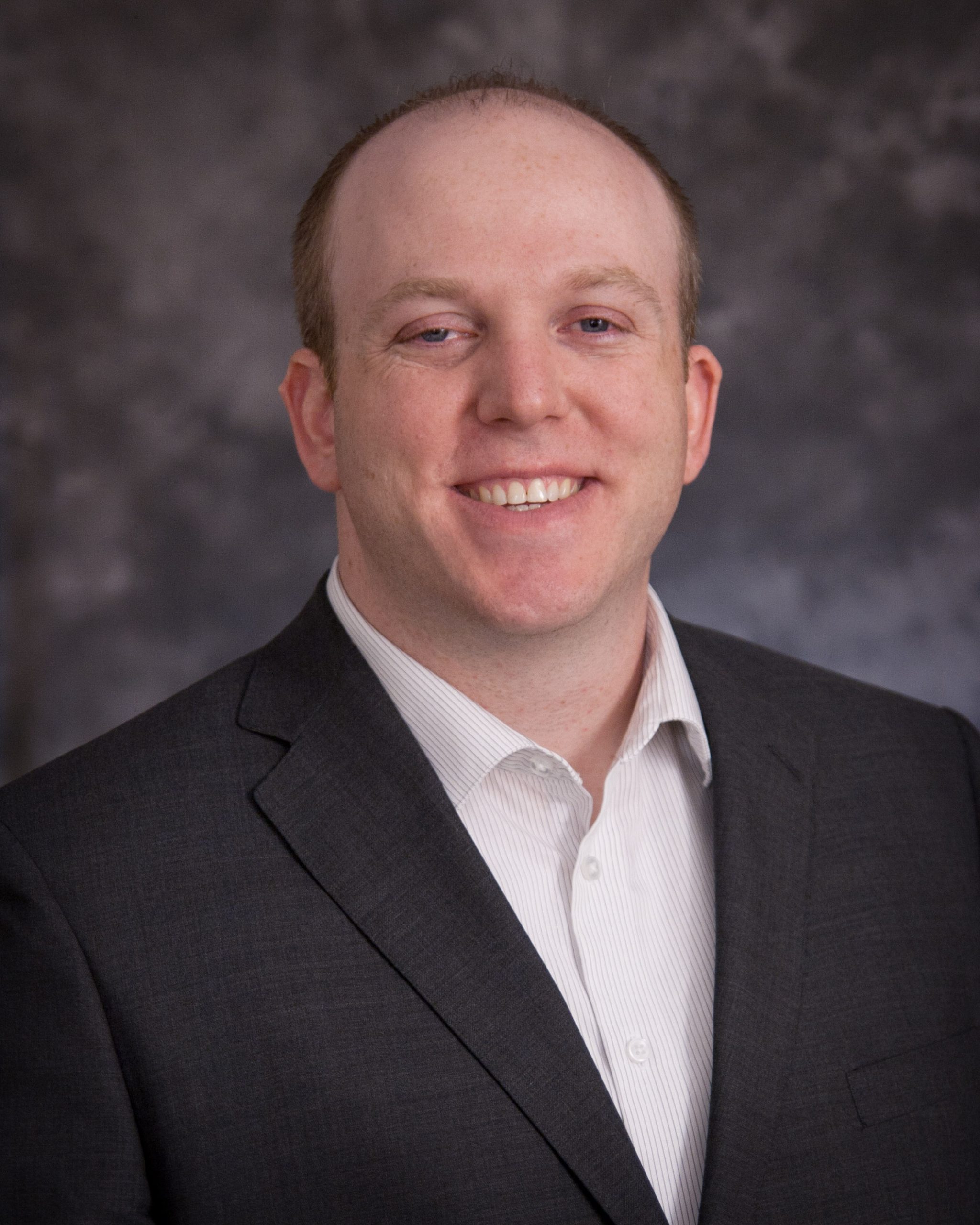
Michael Benjamin
Sr. Director Threat Research, CenturyLink
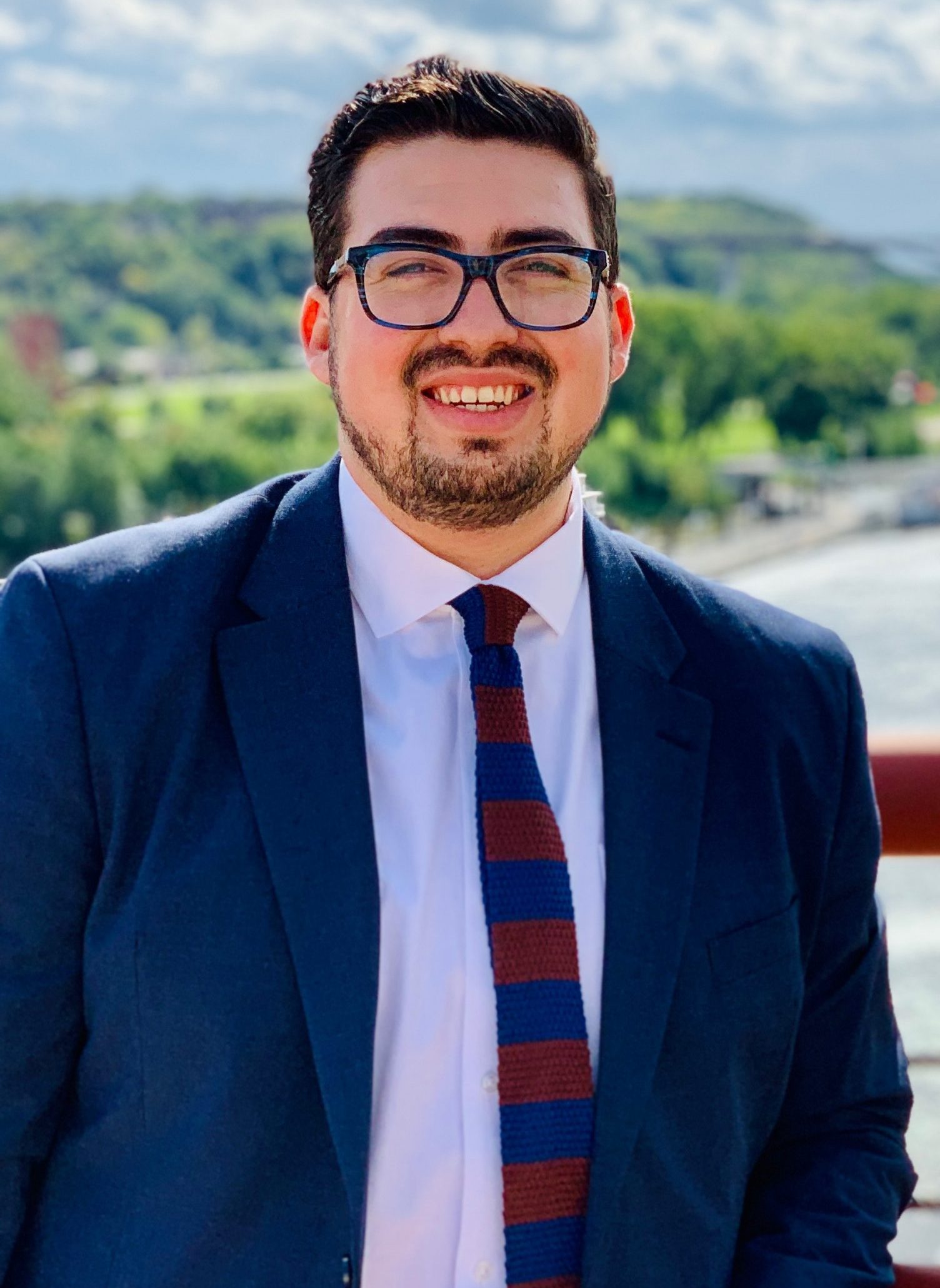
Fernando Cárdenas
Senior Manager for Employee Engagement and Partnerships, Internet Essentials Program at Comcast
Fernando Cárdenas serves as the Senior Manager for Employee Engagement and Partnerships for the Internet Essentials Program at Comcast Corporation, the company’s signature social impact initiative. Fernando is responsible for managing employee volunteers working to close the digital divide in their communities, in addition to managing external partnerships with national and local nonprofit organizations, government entities, and businesses. He assumed this role after many years directing the Council for Opportunity in Education’s TRIO Alumni strategy. Mr. Cárdenas is a graduate of the University of California, Santa Barbara where he pursued Global and International Studies, ultimately becoming the first person in his family to receive a baccalaureate degree. Fernando is a proud alumnus of the TRIO Upward Bound program at Fresno State, and a fierce TRIO advocate.

Marian Christmon
Manager of Digital Inclusion Initiatives, Nashville Public Library
Marian has been with the Nashville Public Library and involved in efforts to close the digital divide for 24 years. She has combined her love for teaching with her role as an IT professional and the two fuel her passion for helping those in the Nashville Community who have yet to become 21st Century Digital Citizens.
As Manager of Digital Inclusion Initiatives, Marian coordinates the library’s digital literacy outreach program and develops partnerships with organizations such as United Way, National Council on Aging and the local Public Housing Agency to deliver digital literacy training to Nashvillians within their local neighborhoods. This work includes leading the digital literacy component of ConnectHome Nashville.
Marian has served previously as the library’s Public Technology Services Manager, overseeing the end-user support of all technology-based services and as the Technology Services Manager, receiving a commendation from NPL library board for her role in planning and implementing library technology.
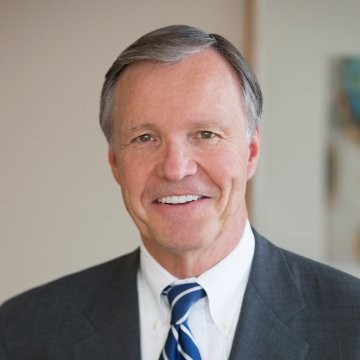
Chris Cox
Morgan, Lewis & Bockius LLP
Chris Cox is Counsel at Morgan, Lewis & Bockius LLP. He currently serves as a director of privately held companies in the health care technology and professional services industries, and serves on the board of NetChoice. During a 23-year Washington career, Chris was White House counsel to President Ronald Reagan, chairman of the US Securities and Exchange Commission, chairman of the Homeland Security Committee in the US House of Representatives, and the fifth-ranking elected leader in the House.
While in Congress, Chris was also chairman of the Select Committee on US National Security and a senior member of the Energy and Commerce Committee and the Financial Services Committee. For 10 years he served as chairman of the House Policy Committee. In each of these capacities he was responsible for significant legislation, including Section 230 of the Communications Decency Act, the Internet Tax Freedom Act, and the Securities Litigation Reform Act.
Prior to his Washington service he was a partner at Latham & Watkins and a member of the faculty at Harvard Business School

Laura DeNardis
Professor and Interim Dean of the School of Communication at American University
Dr. Laura DeNardis is a Professor and Interim Dean of the School of Communication at American University and a Faculty Director of the Internet Governance Lab. Among her six books are The Global War for Internet Governance (Yale University Press 2014) and The Internet in Everything: Freedom and Security in a World with No Off Switch (Yale University Press 2020). She has received grants of more than a million dollars to support her work. In 2018, she received American University’s highest faculty award, Scholar-Teacher of the Year. She is an affiliated fellow of the Yale Law School Information Society Project and previously served as its Executive Director. Her expertise and scholarship have been featured in the Wall Street Journal, Bloomberg, Wired, Market Watch, the Washington Post, Science Magazine, The Economist, National Public Radio, New York Times, Newsweek, Time Magazine, Christian Science Monitor, Slate, Reuters, Forbes, and The Atlantic, among others. She has served as a State Department advisor and the Research Director of the Global Commission on Internet Governance. She holds an Engineering Science degree from Dartmouth College, an MEng from Cornell, a PhD in Science and Technology Studies from Virginia Tech, and was awarded a postdoctoral fellowship from Yale Law School.

Hany Farid
Professor, University of California, Berkeley
Hany Farid is a Professor at the University of California, Berkeley with a joint appointment in Electrical Engineering & Computer Sciences and the School of Information. His research focuses on digital forensics, image analysis, and human perception. He received his undergraduate degree in Computer Science and Applied Mathematics from the University of Rochester in 1989, his M.S. in Computer Science from SUNY Albany, and his Ph.D. in Computer Science from the University of Pennsylvania in 1997. Following a two-year post-doctoral fellowship in Brain and Cognitive Sciences at MIT, he joined the faculty at Dartmouth College in 1999 where he remained until 2019. He is the recipient of an Alfred P. Sloan Fellowship, a John Simon Guggenheim Fellowship, and is a Fellow of the National Academy of Inventors.

Jennifer Golbeck
Professor, College of Information Studies at the University of Maryland
Jennifer Golbeck is a Professor in the College of Information Studies at the University of Maryland, College Park.
Her research focuses on artificial intelligence and social media, privacy, and trust on the web. She focuses on combatting malicious behavior online and building algorithms that improve people's experience with information.
She received an AB in Economics and an SB and SM in Computer Science at the University of Chicago, and a Ph.D. in Computer Science from the University of Maryland, College Park.
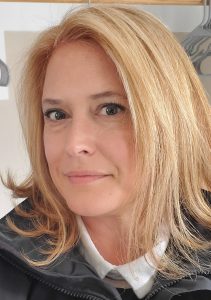
Ashley Heineman
Director, Global Policy, GoDaddy
Ashley Heineman is Director, Global Policy at GoDaddy, and was elected as Chair of the ICANN Registrar Stakeholder Group in June 2020. Prior to GoDaddy, Heineman worked at the National Telecommunications and Information Administration (NTIA) at the U.S. Department of Commerce. Heineman has been a leader in technical and public policy associated with the Domain Name System for over fifteen years.
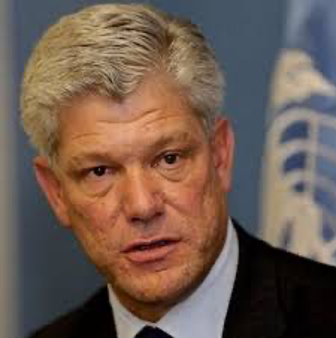
Fabrizio Hochschild
Special Adviser on the Preparations for the Commemoration of the United Nations’ 75th Anniversary United Nations Secretariat, New York
In his current role Mr. Hochschild is heading the Secretary-General’s vision for a global citizen conversation ahead of the UN@75 anniversary in 2020. Prior to his appointment, Mr. Hochschild served as Assistant Secretary-General for Strategic Coordination in the Executive Office of the Secretary-General (2017-2019).
Previously, Mr. Hochschild served as Deputy Special Representative for the UN peacekeeping mission in Central African Republic (MINUSCA) in 2016, UN Resident Coordinator, Humanitarian Coordinator and Resident Representative of the UN Development Programme (UNDP) in Colombia from 2013 to 2016, and as Director of the Field Personnel Division for the United Nations from 2010 to 2012. He started his careen in 1988 with UNHCR and served in various field settings.
A graduate of the University of Oxford, United Kingdom, he has published studies and articles on leadership, on the protection of civilians, on transitional justice and reconciliation among other topics.
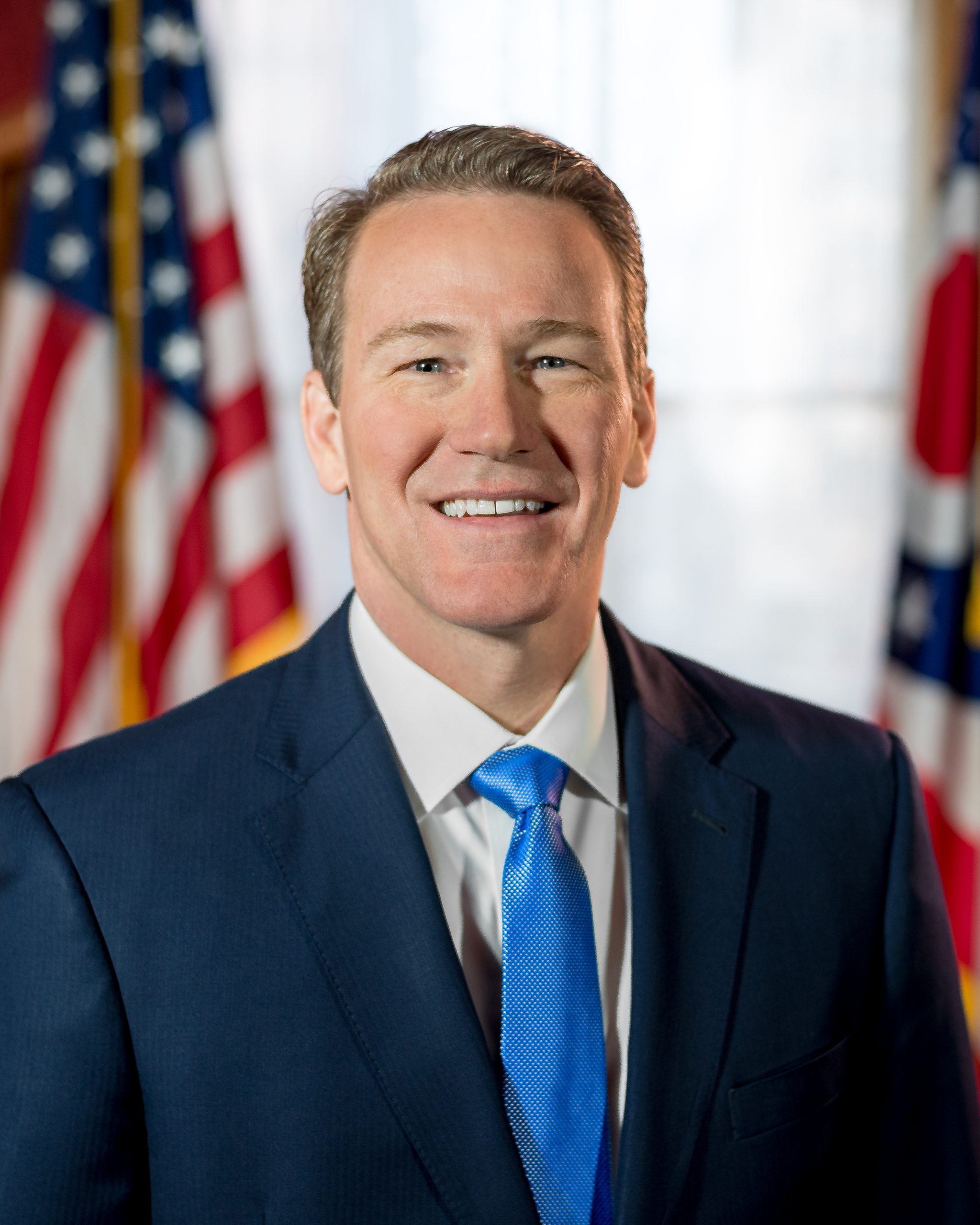
Jon Husted
Lt. Governor of Ohio
Jon Husted is the 66th and current Lt. Governor of Ohio, a position he has held since January 14, 2019. As Lt. Governor, Husted oversees the state’s economic development efforts through a series of initiatives designed to strengthen Ohio’s workforce, promote innovation and entrepreneurship, and reduce regulatory burdens on job creators.
During the COVID-19 global pandemic, Lt. Governor Husted’s primary role has been to manage Responsible Reopen Ohio, the plan to safely open the state’s economy as society learns to live with the coronavirus.
Lt. Governor Husted is the founding Director of InnovateOhio, which is an initiative to promote Ohio as the most innovative, creative, and entrepreneurial state in the Midwest. Using technology, InnovateOhio also works across state agencies in order to implement modern solutions that improve the efficiency and cost effectiveness of state services.
As Director of the Governor’s Office of Workforce Transformation, Lt. Governor Husted strives to connect Ohioans with the education and training they need to open new career opportunities. The offi ce does this while also promoting efforts to ensure our workforce is prepared to power the needs Ohio’s current and prospective businesses and industries. Under his direction, the Governor’s Office of Workforce Transformation has launched programs aimed at ensuring every high school student has the chance to graduate either college or career ready, while giving businesses and current workers the ability to upskill for changing industries through TechCred. The Lt. Governor is also helping to support industry-sector partnerships across the state in order to support successful local efforts to solve regionally-specific workforce issues.
Upon taking office, Lt. Governor Husted overhauled the Common Sense Initiative (CSI-Ohio), whose mission is to look at all new and renewing state regulations through the eyes of Ohio’s businesses and job creators. Husted improved processes at the regulation-cutting initiative in order to clear a major backlog of rules, and is now working to make it more proactive in supporting job creation and regulatory reform in the state.
Prior to being elected Lt. Governor, Husted served as Ohio’s Secretary of State where he presided over elections in the critical swing state as well as oversaw Ohio’s business fi ling center. During his eight-year tenure in the offi ce, then-Secretary Husted used technology to revolutionize the way businesses and entrepreneurs interact with the state government. The efficiencies improved customer service and reduced the average time to register a new business from days or even weeks to just a few hours.
As a result of Husted’s work cutting costs in the Secretary of State’s Office, he was able to pass that savings along to Ohio’s businesses and job creators by cutting the fee for starting and maintaining a business by 21%, a move that made Ohio the least costly state in the Midwest for entrepreneurs. For the remaining two years of his term, Secretary Husted ran the office entirely without tax dollars and requested to return his remaining $10 million surplus to the treasury before leaving office.
Husted began his public service in the state legislature, serving in both the House and Senate, where his colleagues twice unanimously elected him to serve as Speaker of the House. As Speaker, Husted shepherded what was hailed as the most conservative state budget in decades, which included what was at the time, the largest income tax cut in Ohio’s history.
Lt. Governor Husted earned both a bachelor’s degree in education and master’s degree in communications from the University of Dayton where he was a member of the 1989 Division III National Championship Football Team and named an All-American Defensive Back. Of all his responsibilities, Lt. Governor Husted considers his most important role as that of husband to his wife, Tina, and father to Alex, Katie, and Kylie.

Darrin E. Jones
Executive Assistant Director, Science and Technology Branch, FBI
Director Christopher Wray has named Darrin E. Jones as the executive assistant director of the Science and Technology Branch at FBI Headquarters in Washington. Mr. Jones most recently served as the assistant director of the Information Technology Infrastructure Division.
As EAD, Mr. Jones oversees the Criminal Justice Information Services, Laboratory, and Operational Technology Divisions.
Mr. Jones began his FBI career in 1997 as a special agent in the Salt Lake City Field Office, where he investigated international drug trafficking and cybercrime, and helped lead the counterterrorism planning for the 2002 Olympics. In 2003, he was promoted to supervisor and served as a congressional liaison in the Office of Congressional Affairs at Headquarters.
In 2005, Mr. Jones became a supervisor in the Operational Technology Division at Quantico, Virginia. He moved to the Albuquerque Field Office in 2007 as the cyber program supervisor, managing criminal cyber cases and national security intrusion investigations. In 2009, he coordinated the construction of the New Mexico Regional Computer Forensic Laboratory, the FBI’s 16th such facility. He also served as director of the lab, which provides digital forensics services to the law enforcement and national security communities.
In 2011, Mr. Jones was promoted to assistant special agent in charge of the Anchorage Field Office. He returned to FBI Headquarters in 2013 as a section chief in the Operational Technology Division, overseeing technical and policy matters associated with electronic communication interception. He was named special agent in charge of the Kansas City Field Office in Missouri in March 2017.
Director Wray named Mr. Jones as the assistant director of the Information Technology Infrastructure Division in 2019.
Mr. Jones earned a bachelor’s degree from the University of Nebraska. In 2018, Mr. Jones earned an advanced certification in Information Security from Carnegie Mellon University.

Cristopher C. Krebs
Director, Cybersecurity and Infrastructure Security Agency (CISA), Department of Homeland Security
Christopher Krebs serves as the first director of the Department of Homeland Security’s Cybersecurity and Infrastructure Security Agency (CISA). Mr. Krebs was originally sworn in on June 15, 2018 as the Under Secretary for the predecessor of CISA, the National Protection and Programs Directorate (NPPD). Mr. Krebs was nominated for that position by President Trump in February 2018.
Before serving as CISA Director, Mr. Krebs was appointed in August 2017 as the Assistant Secretary for Infrastructure Protection. In the absence of a permanent NPPD Under Secretary at the time, Mr. Krebs took on the role of serving as the Senior Official Performing the Duties of the Under Secretary for NPPD until he was subsequently nominated as the Under Secretary and confirmed by the Senate the following year.
Mr. Krebs joined DHS in March 2017, first serving as Senior Counselor to the Secretary, where he advised DHS leadership on a range of cybersecurity, critical infrastructure, and national resilience issues. Prior to coming to DHS, he was a member of Microsoft’s U.S. Government Affairs team as the Director for Cybersecurity Policy, where he led Microsoft’s U.S. policy work on cybersecurity and technology issues. Before Microsoft, Mr. Krebs advised industry and Federal, State, and local government customers on a range of cybersecurity and risk management issues. This is his second tour working at DHS, previously serving as the Senior Advisor to the Assistant Secretary for Infrastructure Protection and playing a formative role in a number of national and international risk management programs.
As Director, Mr. Krebs oversees CISA’s efforts to defend civilian networks, manage systemic risk to National critical functions, and work with stakeholders to raise the security baseline of the Nation’s cyber and physical infrastructure.
Mr. Krebs holds a bachelor’s degree in environmental sciences from the University of Virginia and a J.D. from the Antonin Scalia Law School at George Mason University.

Nicol Turner Lee
Director, Center for Technology Innovation, Brookings Institution
Dr. Nicol Turner-Lee is a fellow in the program’s Center for Technology Innovation and a contributor to TechTank. She comes to Brookings from the Multicultural Media, Telecom and Internet Council (MMTC), a national non-for-profit organization dedicated to promoting and preserving equal opportunity and civil rights in the mass media, telecommunications, and broadband industries, where she served as vice president and chief research and policy officer. In this role, she led the design and implementation of their research, policy, and advocacy agendas. Her most recent White Papers at MMTC included, “A Lifeline to High-Speed Internet Access: An Economic Analysis of Administrative Costs and the Impact on Consumers” (March 2016), “Guarding Against Data Discrimination in the Internet of Everything” (September 2015), “Refocusing Broadband Policy: The New Opportunity Agenda for People of Color” (November 2013). Prior to joining MMTC, Dr. Turner-Lee was vice president and the first director of the Media and Technology Institute at the Joint Center for Political and Economic Studies, the nation’s leading think tank on issues related to African Americans and other people of color. In this role, she led the technology research agenda that was focused on advancing digital equity and inclusion for historically disadvantaged populations. Her most notable work was her development of the first national minority broadband adoption study in 2009 that was later cited in the congressionally mandated Federal Communications Commission’s National Broadband Plan. Her other publications there included, “Minorities, Mobile Broadband, and the Management of Chronic Diseases” (April 2012), co-authored with Dr. Brian Smedley and Joseph Miller; “Place Matters: The Debate over Broadband Availability” (2011); and, “Increasing Civic Engagement in the Digital Age” (2010) which was published by the Federal Communications Commission Law Journal. In addition to these and other publications, Dr. Turner-Lee has been cited in the New York Times, Washington Post, San Francisco Chronicle, Communications Daily, Multichannel News, Washington Informer, among other print and online publications. She is also a widely sought expert and speaker on issues related to communications policies in media and at conferences, and she has testified before Congress. Dr. Turner-Lee was a two-time Digital Research Program Scholar as part of Time Warner Cable’s Cable Research Program in Communications and recipient of countless recognitions, including the presentation of the Lifetime Achievement Award from the Rainbow PUSH Coalition (2015) and one of the Most Inspiring Women in Media from the Alliance of Women in Media (2014). At the Center for Technology Innovation, Dr. Turner-Lee researches public policy designed to enable equitable access to technology across the U.S. and to harness its power to create change in communities across the world. Dr. Turner-Lee’s research also explores global and domestic broadband deployment, regulatory, and internet governance issues. She is also an expert on the intersection of race, wealth, and technology within the context of civic engagement, criminal justice, and economic development. Dr. Turner-Lee graduated from Colgate University magna cum laude and has a M.A. and Ph.D. in Sociology from Northwestern University. She also holds a Certificate in Nonprofit Management from the University of Illinois-Chicago. Dr. Turner-Lee is a Visiting Scholar at the Center for Gender Equity in Science and Technology at Arizona State University. She also serves on the U.S. State Department’s Advisory Committee on International Communications and Information Policy (ACICIP). In her free time, Dr. Turner-Lee is active on the boards of various nonprofit organizations, including the Telecommunications Policy Research Conference (TPRC), the Washington Literacy Center, and STEM4US, which is committed to advancing diversity in the technology fields.
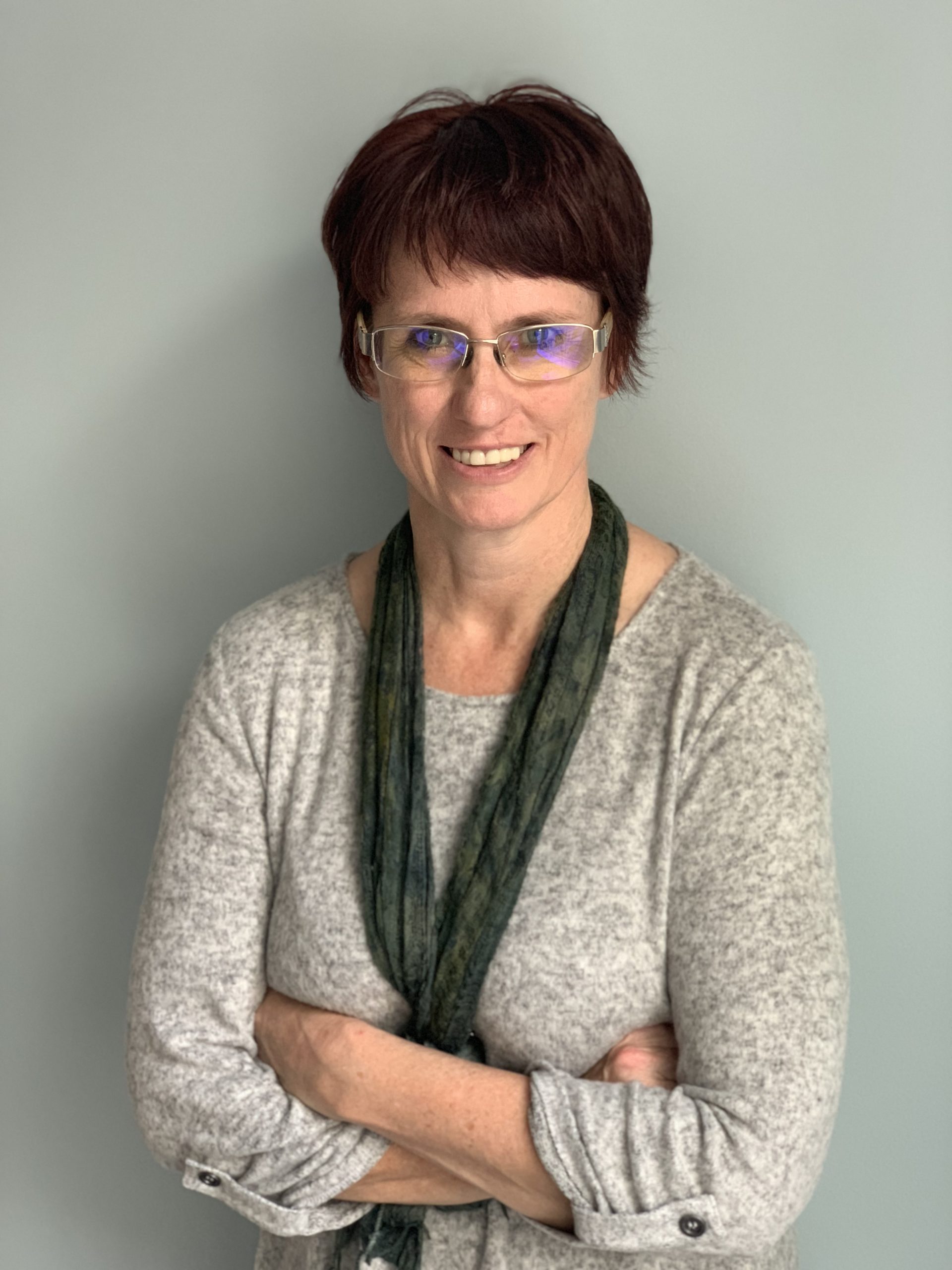
Brenda Leong
Senior Counsel and Director of Artificial Intelligence and Ethics, Future of Privacy Forum
Brenda Leong, CIPP/US, is Senior Counsel and Director of Artificial Intelligence and Ethics at the Future of Privacy Forum. She oversees development of privacy analysis of AI and Machine Learning technologies, manages the FPF portfolio on biometrics and digital identity, particularly Facial Recognition, along with the Ethics challenges of these emerging systems. She works on industry standards and collaboration on privacy and responsible data management, by partnering with stakeholders and advocates to reach practical solutions for consumer and commercial data uses. Prior to working at FPF, Brenda served in the U.S. Air Force, including policy and legislative affairs work from the Pentagon and the U.S. Department of State. She is a 2014 graduate of George Mason University School of Law.

James Andrew Lewis
Senior Vice President and Director of the Technology Policy Program at the Center for Strategic and International Studies
James Andrew Lewis is a senior vice president and director of the Technology Policy Program at the Center for Strategic and International Studies (CSIS). He has authored numerous publications on the relationship between technology, innovation, and national power. His current research examines international security and governance in cyberspace, the geopolitics of innovation, the future of warfare, and the effect of the internet on politics. Lewis is an internationally recognized expert on cybersecurity and technology and was one of the first to approach cybersecurity as a policy and strategic problem. His writings include the best-selling Cybersecurity for the 44th Presidency, the national cybersecurity strategy cited by President Obama in the first speech by a U.S. president on cybersecurity and that became a template for cyber strategy in other countries. Lewis was the rapporteur for the United Nations' successful 2010, 2013, and 2015 Group of Government Experts on Information Security, whose reports set out the global agenda for cybersecurity by emphasizing norms for responsible state behavior, confidence building, and capacity-building measures.
Before joining CSIS, Lewis worked at the Departments of State and Commerce as a foreign service officer and as a member of the Senior Executive Service. His government experience included a range of politico-military and negotiating assignments, including the development of groundbreaking policies on commercial remote sensing, encryption, and advanced conventional weapons. He was assigned as a political advisor to the U.S. Southern Command for Operation Just Cause, the U.S. Central Command for Operation Desert Shield, and the Central American Task Force. Lewis served on the U.S. delegations to the Cambodian peace process and the Permanent Five talks on arms transfers and nonproliferation, and he negotiated bilateral agreements on transfers of military technology to Asia and the Middle East. He led the U.S. delegation to the Wassenaar Arrangement Experts Group on advanced civilian and military technologies. Lewis led a long-running Track 2 dialogue on cybersecurity with the China Institutes of Contemporary International Relations. He has served as a member of the Commerce Spectrum Management Advisory Committee, the Advisory Committee on International Communications and Information Policy, and the Advisory Committee on Commercial Remote Sensing and as an advisor to government agencies on the security and intelligence implications of foreign investment in the United States. Lewis is frequently quoted in the media and has testified numerous times before Congress. He received his Ph.D. from the University of Chicago.

Robert H. Mayer
Senior Vice President - Cybersecurity, USTelecom Association
Robert Mayer is Senior Vice President of Cybersecurity and Innovation with the USTelecom Association (USTelecom) with responsibility for leading cyber and national security policy and strategic initiatives. He is the current Chairman of the Communications Sector Coordinating Council (CSCC), which represents the broadcast, cable, satellite, wireless and wireline industries in connection with DHS and public-private partnership activities across the U.S. government. Mayer serves as the co-chair of the Department of Homeland Security’s ICT Supply Chain Risk Management Task Force, which recently delivered an Interim Report including findings and recommendations related to information sharing, threat criteria, qualified bidders and manufacturer lists and proposals to address procurement of counterfeit products. He also serves as co-Chair of the Counsel to Secure the Digital Economy (CSDE), which consists of 13 global ICT infrastructure providers that have produced internationally recognized work on IoT baseline capabilities, an International Anti-Botnet Guide and ICT coordination in the event of a global cyber crisis. Mayer was appointed to the FCC Communications Security Reliability and Interoperability Council (CSRIC V), after having led a 100-person team of cybersecurity professionals that produced a landmark report to adapt the NIST Cybersecurity Framework to the broadcast, cable, satellite, wireless and wireline industries.
Prior to USTelecom, Mayer served as the top telecommunications official for New York State as Telecom Director of the New York Public Service Commission. In that capacity, he led several major initiatives including regulatory reform efforts and he created a new agency department that focused exclusively on network reliability and public safety matters. Prior to this appointment, Mayer was the lead regulatory practitioner in the Telecommunications and Cable Group at KPMG Consulting and was a consultant with Deloitte Consulting. Before that, Mayer worked as an analyst in the international telecommunications divisions of Chase Manhattan Bank and JP Morgan. Mayer served in the US Air Force supervising intelligence and communications operations at NATO Headquarters, Southern Europe in Italy. He received his B.A from Albany State University, his MA in Information Management from Central Michigan University, his MBA from Boston University, and his J.D from New York Law School.
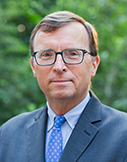
Michael Nelson
Senior Fellow and Director Technology and International Affairs Program, Carnegie Endowment for International Peace
Mike Nelson directs the Carnegie Endowment’s Technology and International Affairs Program, which helps decisionmakers understand and address the impacts of emerging technologies, including digital technologies, biotechnology, and artificial intelligence. Prior to joining Carnegie, he started the global public policy office for Cloudflare, a startup that has improved the performance and security of more than 10 million websites around the world. Nelson has also served as a principal technology policy strategist in Microsoft’s Technology Policy Group and before that was a senior technology and telecommunications analyst with Bloomberg Government. In addition, Nelson has been teaching courses and doing research on the future of the internet, cyber-policy, technology policy, innovation policy, and e-government in the Communication, Culture, and Technology Program at Georgetown University.
Before joining the Georgetown faculty, Nelson was director of internet technology and strategy at IBM, where he managed a team helping define and implement IBM’s next generation internet strategy. He has served as chairman of the Information, Communication, and Computing Section of the American Association for the Advancement of Science, serves as a trustee of the Institute for International Communications, and was selected to be a “Global Leader of Tomorrow” by the World Economic Forum. From 1988 to 1993, he served as a professional staff member for the Senate’s Subcommittee on Science, Technology, and Space and was the lead Senate staffer for the High-Performance Computing Act. In 1993, he joined Vice President Al Gore at the White House and worked with President Bill Clinton’s science adviser on issues relating to the Global Information Infrastructure, including telecommunications policy, information technology, encryption, electronic commerce, and information policy.

Riana Pfefferkorn
Associate Director of Surveillance and Cybersecurity at the Stanford Center for Internet and Society
Riana Pfefferkorn is the Associate Director of Surveillance and Cybersecurity at the Stanford Center for Internet and Society. Her work focuses on investigating and analyzing the U.S. government's policy and practices for forcing decryption and/or influencing crypto-related design of online platforms and services, devices, and products, both via technical means and through the courts and legislatures. Riana also researches the benefits and detriments of strong encryption on free expression, political engagement, economic development, and other public interests.
Prior to joining Stanford, Riana was an associate in the Internet Strategy & Litigation group at the law firm of Wilson Sonsini Goodrich & Rosati, where she worked on litigation and counseling matters involving online privacy, Internet intermediary liability, consumer protection, copyright, trademark, and trade secrets and was actively involved in the firm's pro bono program. Before that, Riana clerked for the Honorable Bruce J. McGiverin of the U.S. District Court for the District of Puerto Rico. She also interned during law school for the Honorable Stephen Reinhardt of the U.S. Court of Appeals for the Ninth Circuit. Riana earned her law degree from the University of Washington School of Law and her undergraduate degree from Whitman College.
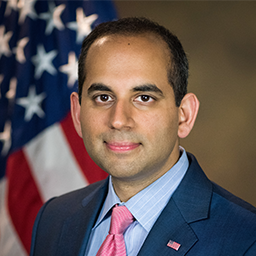
Sujit Raman
Associate Deputy Attorney General, U.S. Department of Justice
Sujit Raman serves as Associate Deputy Attorney General in the U.S. Department of Justice. In this role, he assists the Attorney General and Deputy Attorney General in their oversight of the nation's cyber-related criminal and national security investigations and prosecutions, and chairs the Attorney General’s Cyber-Digital Task Force. He also helps oversee the Department’s cyber-related policy development; represents the Department on cyber matters before the National Security Council; and has testified before the U.S. Senate about the federal government’s cyber priorities.
Before joining the Department of Justice’s senior leadership staff, Mr. Raman served for over eight years as a federal prosecutor. In this role, he gained extensive courtroom experience, led a number of international fraud, public corruption, and national security matters, and served as the government’s counsel of record for several leading cases at the intersection of law, technology, and privacy. Mr. Raman was educated at Harvard College, Harvard Law School, and the University of Bristol (UK), where he studied as a Marshall Scholar and served as head coach of the women's varsity rowing program.
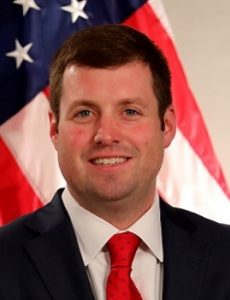
David Redl
CEO, Salt Point Strategies
David Redl is the founder of Salt Point Strategies. David is an attorney and former government executive with experience in both the legislative and executive branches of the U.S. government in the telecommunications, media, and technology fields.
David served as Assistant Secretary of Commerce for Communications and Information and the Administrator of the National Telecommunications and Information Administration from 2017 to 2019. During his tenure, he led U.S. efforts to ensure American leadership in 5G, to bring broadband to more rural Americans, and to promote a free, open, and secure Internet around the world.
David also represented the United States in international forums, including leading U.S. efforts before the Internet Corporation for Assigned Names and Numbers, the Inter-American Telecommunication Commission, the Organisation for Economic Co-operation and Development, and the International Telecommunication Union.
In the legislative branch, David served as Chief Counsel for Communications and Technology on the majority staff of the U.S. House of Representatives Committee on Energy and Commerce. While at Energy and Commerce, David worked extensively on telecommunications, media, and technology laws, including the successful passage of laws authorizing the first-ever spectrum incentive auction, the creation of the First Responder Network Authority, and reauthorization of the satellite television laws.
Prior to his government service, David started his career as Director of Regulatory Affairs at CTIA, an international trade association of the wireless communications industry.
David received his B.A. in Journalism and his B.A. in Political Science from the Pennsylvania State University and his J.D. from the Catholic University of America with a certificate from the Institute for Communications Law Studies. He is a member of the New York and District of Columbia Bars. David is also a Senior Fellow with Silicon Flatirons at the University of Colorado Boulder.

Dr. William Scherlis
Office Director, DARPA’s Information Innovation Office
Dr. William Scherlis assumed the role of office director for DARPA’s Information Innovation Office (I2O) in September 2019. In this role he leads program managers in the development of programs, technologies, and capabilities to ensure information advantage for the United States and its allies, and coordinates this work across the Department of Defense and U.S. government.
Scherlis joined DARPA from Carnegie Mellon University (CMU), where he is a professor of computer science. He served for 12 years as director of CMU's Institute for Software Research (ISR), overseeing research and educational programs related to software development, cybersecurity, privacy engineering, Internet of Things, network analysis, mobility, systems assurance, and other topics. During 2012 and early 2013 he was the acting chief technology officer for the Software Engineering Institute, a Department of Defense FFRDC at CMU.
Earlier in his career, Scherlis served as a program manager and later in the Senior Executive Service at DARPA, developing programs in areas such as software technology, computer security, and information infrastructure. At DARPA, he also participated in the initiation of the High Performance Computing and Communications (HPCC) program (now NITRD) and in defining the concept for CERT-like security organizations, hundreds of which now operate in more than 90 countries.
Scherlis has led multiple national studies including the National Research Council study committee that produced the report “Critical Code: Software Producibility for Defense” in 2010. He also served multiple terms as a member of DARPA’s Information Science and Technology Study Group. He has been an advisor to major technology firms, defense companies, and venture investors, and has served as program chair for a number of technical conferences including the ACM Foundations of Software Engineering Symposium and the ACM Symposium on Partial Evaluation and Program Manipulation. He is a fellow of the IEEE and a Lifetime National Associate of the National Academy of Sciences.
Scherlis joined the CMU faculty after completing an undergraduate degree in applied mathematics at Harvard University, a year in the Department of Artificial Intelligence at the University of Edinburgh as a John Knox Fellow, and a doctorate program in computer science at Stanford University. His personal research relates to software assurance, cybersecurity, software analysis, and assured safe concurrency.
Scherlis joined the Carnegie Mellon faculty after completing an A.B. magna cum laude at Harvard University in applied mathematics, a year in the Department of Artificial Intelligence at the University of Edinburgh (Scotland) as a John Knox Fellow, and a Ph.D. in computer science at Stanford University (Zohar Manna advisor). His research relates to software assurance, cybersecurity, software analysis, and assured safe concurrency. His team has developed analysis tools based on techniques to verify safe concurrency, information flow, and other properties that tend to defy conventional testing and heuristic analysis. He has led several large research projects including the National Security Agency Science of Security Lablet at CMU since its inception in 2011 and, previously, the Carnegie Mellon / NASA High Dependability Computing Project (HDCP).
Scherlis has testified before Congress on federal software sustainment, on computing technology and innovation, and on roles for a Federal CIO. He interrupted his career at CMU to serve at Defense Advanced Research Projects Agency (DARPA) for more than six years, departing in 1993 as a federal senior executive. At DARPA his responsibilities related to research and strategy in software technology, computer security, information infrastructure, and other topics. He participated in the initiation of the high performance computing and communications (HPCC) program (now NITRD) and in defining the concept for CERT-like security organizations, hundreds of which now operate in more than 90 countries world-wide.
Scherlis has led multiple national studies including the National Research Council (NRC) study committee that produced the report Critical Code: Software Producibility for Defense in 2010. He served multiple terms as a member of the DARPA Information Science and Technology Study Group (ISAT). He has been an advisor to major technology firms, defense companies, and venture investors, and is a co-founder of Panopto, a CMU spin-off. He has served as program chair for a number of technical conferences including the ACM Foundations of Software Engineering (FSE) Symposium and the ACM Symposium on Partial Evaluation and Program Manipulation (PEPM).
He is a Fellow of the IEEE and a Lifetime National Associate of the National Academy of Sciences.

David Snead
General Counsel, cPanel
David Snead is the General Counsel for cPanel – the world’s largest web hosting automation company. He is responsible for cPanel’s global legal operations and is a member of the company’s management team. David has provided advice and counsel to technology companies since 1995 beginning with a practice based on technology exports. Since 1999, his practice has focused exclusively on the Internet infrastructure industry. In 2011 he co-founded the Internet Infrastructure Coalition (I2Coalition), an advocacy organization for the Internet infrastructure industry. He manages the i2Coalition’s global public policy portfolio. David is also on the Board of Directors of the Open Cloud Foundation. The Foundation seeks to establish standards that promote transparency and customer choice in the cloud. David received his J.D. in 1991 from Georgetown University Law Center, and his B.A. in 1987 in International Affairs from Trinity University in San Antonio.
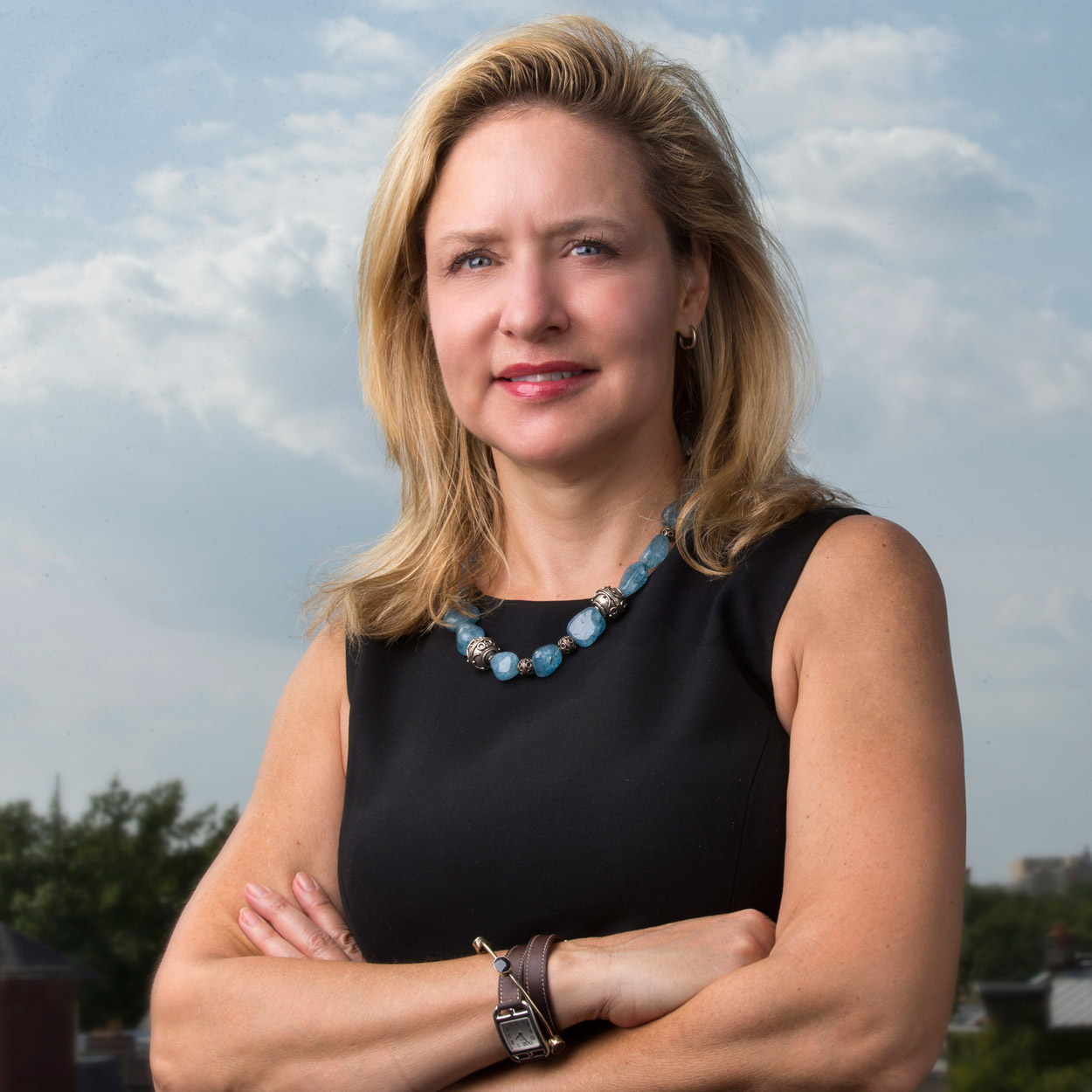
Shane Tews
President at Logan Circle Strategies
Shane Tews is a visiting fellow at the American Enterprise Institute managing the Global Internet Strategy program that focuses on cyber security and Internet governance as part of AEI’s Center for Internet, Communications, and Technology Policy. Along with her work at AEI Shane in the President of Logan Circle Strategies working with her clients to create a coordinated public policy approach to Information Communications and Technology policies and cyber security and cyber governance strategies on a global scale. Additionally, Shane manages many of the relationships with Congress, the Administration, Foreign Governments, Think Tanks and Trade Associations on behalf of Vrge Communications. Shane was formerly Vice President of Global Public Policy and Government Relations for Verisign, Inc. where she was responsible for the strategic planning and daily management of the Policy and Government Relations efforts for Verisign globally. Shane represented Verisign’s interest before United States and International government officials in the Information Communications and Technology Sector where she participated in the development of e-commerce policies with International governing bodies, National and State Legislators, International, National and Regional trade associations and Information Technology coalitions. Shane is Vice-Chair of the Board of Directors for the Internet Education Foundation and previously served as the co-Chair of the Internet Governance Forum USA (IGF-USA). She is also currently a board member of TechFreedom and GlobalWIN. She formerly sat on several Information Technology Boards including the European American Business Council, the Information Technology Industry Council, the Information Technology Industry Foundation, and the United States Telecommunications Training Institute.

Daniel J. Weitzner
Founding Director, MIT Internet Policy Research Initiative
Daniel J. Weitzner is Founding Director of the MIT Internet Policy Research Initiative, Principal Research Scientist at CSAIL, and teaches Internet public policy in MIT’s Electrical Engineering and Computer Science Department. Weitzner’s research pioneered thedevelopment of Accountable Systems to enable computational treatment of legal rules.
Weitzner was United States Deputy Chief Technology Officer for Internet Policy in the White House. Where he led initiatives on privacy, cybersecurity, copyright, and digital trade policies promoting the free flow of information. He was responsible for the Obama Administration’s Consumer Privacy Bill of Rights and the OECD Internet Policymaking Principles.
Weitzner has been a leader in Internet public policy from its inception, making fundamental contributions to the successful fight for strong online free expression protection in the United States Supreme Court, and for laws that control government surveillance of email and web browsing data.
Weitzner has a law degree from Buffalo Law School, and a B.A. in Philosophy from Swarthmore College. His writings have appeared in Science magazine, the Yale Law Review, Communications of the ACM, the Washington Post, Wired Magazine and Social Research.
Weitzner is a founder of the Center for Democracy and Technology, led the World WideWeb Consortium’s public policy activities, and was Deputy Policy Director of the ElectronicFrontier Foundation. He is a Fellow of the National Academy of Public Administration,recipient of the International Association of Privacy Professionals Leadership Award(2013), the Electronic Frontier Foundation Pioneer Award (2016), a member of the Councilon Foreign Relations and a Senior Fellow at the German Marshall Fund.
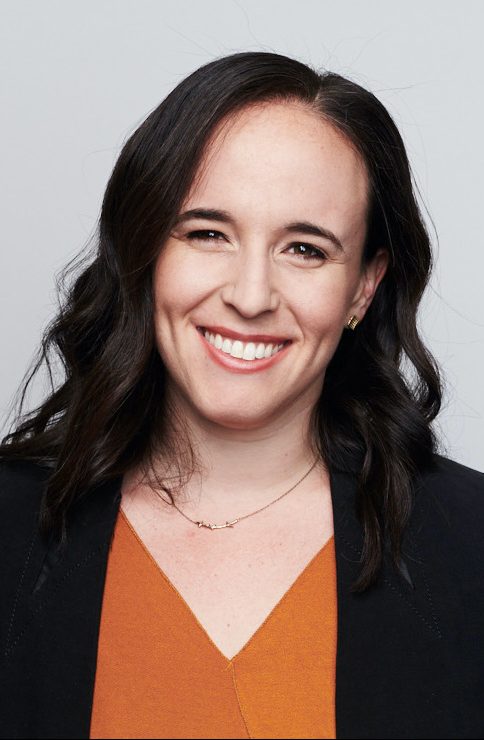
Miranda Bogen
Policy Manager for Artificial Intelligence and Machine Learning, Facebook

Vint Cerf
Chief Internet Evangelist, Google
Vinton G. Cerf is vice president and Chief Internet Evangelist for Google. He contributes to global policy development and continued spread of the Internet. Widely known as one of the "Fathers of the Internet," Cerf is the co-designer of the TCP/IP protocols and the architecture of the Internet. He has served in executive positions at MCI, the Corporation for National Research Initiatives and the Defense Advanced Research Projects Agency and on the faculty of Stanford University.
Vint Cerf served as chairman of the board of the Internet Corporation for Assigned Names and Numbers (ICANN) from 2000-2007 and has been a Visiting Scientist at the Jet Propulsion Laboratory since 1998. Cerf served as founding president of the Internet Society (ISOC) from 1992-1995. Cerf is a Foreign Member of the British Royal Society and Swedish Academy of Engineering, and Fellow of IEEE, ACM, and American Association for the Advancement of Science, the American Academy of Arts and Sciences, the International Engineering Consortium, the Computer History Museum, the British Computer Society, the Worshipful Company of Information Technologists, the Worshipful Company of Stationers and a member of the National Academy of Engineering. He currently serves as Past President of the Association for Computing Machinery, chairman of the American Registry for Internet Numbers (ARIN) and completed a term as Chairman of the Visiting Committee on Advanced Technology for the US National Institute of Standards and Technology. President Obama appointed him to the National Science Board in 2012.
Cerf is a recipient of numerous awards and commendations in connection with his work on the Internet, including the US Presidential Medal of Freedom, US National Medal of Technology, the Queen Elizabeth Prize for Engineering, the Prince of Asturias Award, the Tunisian National Medal of Science, the Japan Prize, the Charles Stark Draper award, the ACM Turing Award, Officer of the Legion d’Honneur and 29 honorary degrees. In December 1994, People magazine identified Cerf as one of that year's "25 Most Intriguing People."
His personal interests include fine wine, gourmet cooking and science fiction. Cerf and his wife, Sigrid, were married in 1966 and have two sons, David and Bennett.
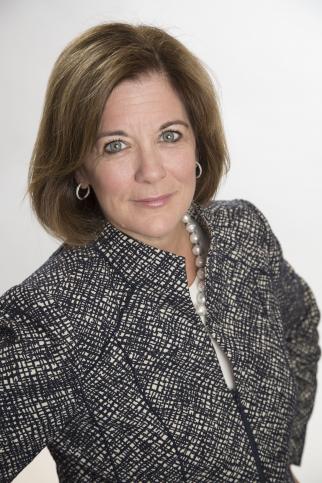
Suzanne Clark
President, U.S. Chamber of Commerce
Suzanne Clark is President of the US Chamber of Commerce, the largest business federation in the world.
Ms. Clark focuses on strategy, government relations and market innovation working in support of its more than 3 million member companies internationally. She leads a wide range of policy and operational initiatives at the quarter billion dollar organization, and was the first Senior Executive Vice President in the institution’s 104-year history.
Prior to re-joining the US Chamber in 2014, where she had previously served as Chief Operating Officer, Clark acquired and led a prominent financial information boutique – Potomac Research Group (PRG) – which was recognized by the Inc500 as the 135th fastest growing private company in 2012. PRG became a brand leader in the field of policy research and analysis for institutional investors – connecting “Washington to Wall Street;” and, the firm was sold to a larger macro research organization where she is a non-executive partner. As a seasoned business owner, Ms. Clark remains passionate about the need to create an environment where companies can innovate, grow and flourish.
In 2007, Clark was named President of the National Journal Group (NJG), a premier provider of information, news and analysis for Washington’s political and policy communities. NJG is an arm of Atlantic Media Company, and for the next three years Clark led NJG’s 6 distinct print, online, and event businesses and guided an evolution from long form journalism to cutting edge digital and mobile media, with the result that her group produced record-level profits and received multiple journalism awards.
Clark sits on the Board of two public companies – AGCO, a Fortune 500 global leader in the design, manufacture and distribution of agricultural equipment, and TransUnion, a provider of global risk and credit information. She is also a member of the Board of So Others Might Eat, serving the poor and homeless in the nation’s capital, and St. Patrick’s Episcopal Day School. She is the former President of the International Women’s Forum (Washington Chapter), a global group of leading women in business, law, government, technology and the arts. Clark was named one of Washingtonian Magazine’s “40 Under 40: Young Washingtonians to Watch,” and later, one of the magazine’s “100 Most Powerful Women in Washington.”
Ms. Clark earned a BA, magna cum laude, and an MBA from Georgetown University, and lives in Virginia with her husband and their daughter.
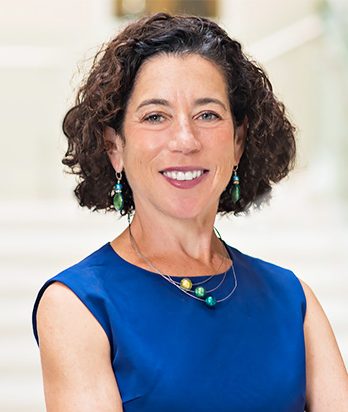
Jennifer Daskal
Faculty Director, Tech, Law & Security Program, Washington School of Law, American University
Jennifer Daskal is a Professor and Faculty Director of the Tech, Law, Security Program at American University Washington College of Law, where she teaches and writes in the fields of cyber, national security, criminal and constitutional law. From 2009-2011, Daskal worked as the counsel to the Assistant Attorney General for National Security at the Department of Justice. Prior to joining DOJ, Daskal was senior counterterrorism counsel at Human Rights Watch, worked as a staff attorney for the Public Defender Service for the District of Columbia, and clerked for the Honorable Jed S. Rakoff. She also spent two years as a national security law fellow and adjunct professor at Georgetown Law Center. From 2016-2017, she was an Open Society Institute Fellow working on issues related to privacy and law enforcement access to data across borders. She is currently a Scholar-in-Residence at New America.
Daskal’s scholarship has appeared in the Yale Law Journal, University of Pennsylvania Law Review, Vanderbilt Law Review, Stanford Law Review Online, and Harvard Journal of National Security Law, among other places. She published numerous op-eds, including in the New York Times, Washington Post, and The Atlantic and appeared has appeared on BBC, C-Span, MSNBC, and NPR, among other media outlets. She is an Executive Editor of the Just Security blog.
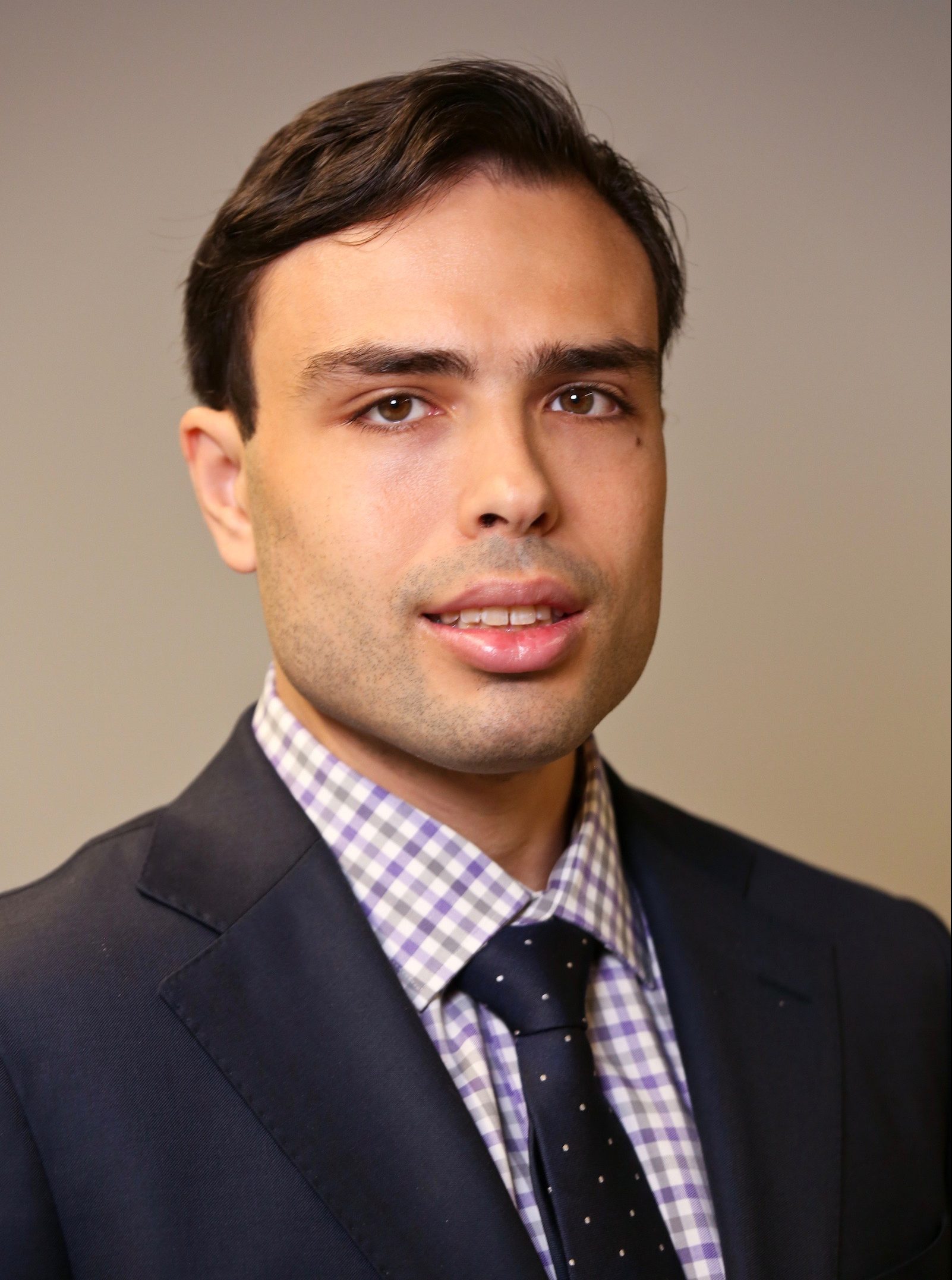
Paul Eisler
Director of Cybersecurity, USTelecom
Paul Eisler is the Director of Cybersecurity at USTelecom. An attorney with a decade of experience in cyber policy, he serves as legal advisor to the Council to Secure the Digital Economy (CSDE), a partnership of 13 global ICT companies that publish influential security guidance, and Vice Chair of the Communications Sector Coordinating Council (CSCC) Cybersecurity Committee, which facilitates public-private cyber initiatives across the U.S. government.
Since CSDE’s founding, Paul has been the principal editor and drafter of the CSDE International Botnet and IoT Security Guide, and his research on IoT practices laid the groundwork for the C2 Consensus on IoT Device Security Baseline Capabilities, the leading industry agreement on IoT security endorsed by 20 major technology organizations, including industry associations, consortia, and standards bodies. Paul is also the principal editor and drafter of the CSDE report Cyber Crisis: Foundations of Multi-Stakeholder Coordination, which aims to improve incident response capabilities in 12 high-stakes scenarios involving national security and public safety.
In addition, Paul provides legal and strategic guidance to the Communications Sector Co-Chair of the DHS ICT Supply Chain Risk Management Task Force under the National Risk Management Center. The 60-person task force is developing recommendations to deal with the nation's critical infrastructure supply chain risk and includes representatives from over a dozen federal agencies, 20 IT organizations, and 20 communications companies and associations.
Prior to joining USTelecom, Paul worked as a legal consultant to support trade associations and businesses in the communications and IT sectors. He received his law degree with honors from American University Washington College of Law, where he served on the American University Law Review and, at age 20, was distinguished as the law school’s youngest J.D. candidate. He also worked for his alma mater as a Legal Research Fellow, concentrating on economic policies of the European Union.

Dr. James Galvin
Director Strategic Partnerships and Technical Standards, Afilias USA
Dr. James Galvin is Afilias's Director of Strategic Partnerships and Technical Standards. With over 30 years of experience in Internet network security operations, and standards and policy development, James advises on critical infrastructure evolution and product development. He is an expert on the evolution of the Internet threat landscape, and the challenges facing governments and organizations seeking Internet security and stability. Dr. Galvin is a technical leader in Internet standards and policy setting continuing as an active participant in the IETF since 1989 and ICANN since 2002, among others. Dr. Galvin earned his Doctorate from the University of Delaware with his dissertation entitled "Distributed Cryptographic Key Management System".

Rita Heimes
General Counsel and Chief Privacy Officer, International Association of Privacy Professionals
Rita Heimes is General Counsel and Chief Privacy Officer at the International Association of Privacy Professionals. The IAPP is the largest and most comprehensive global information privacy community and resource. Founded in 2000, the IAPP is a not-for-profit organization that helps define, support and improve the privacy profession globally. Before joining the IAPP staff, Rita was a law professor and academic dean at the University of Maine School of Law, where she directed the Center for Law + Innovation and developed the nation’s first Privacy Pathways program and one of the first intellectual property clinics. Over her law career, Rita has practiced privacy and intellectual property law with firms in Seattle, Boulder, and Portland (Maine). She received her BA in Journalism from the University of Iowa and her JD from Drake University School of Law.

Brian Howard
Research & Policy Analyst, American Indian Policy Institute at Arizona State University
Brian Howard is Akimel O’odham, Tohono O’odham, and Pee-Posh, and an enrolled member of the Gila River Indian Community where he grew up in the Komatke District. Brian is currently employed at the Arizona State University, American Indian Policy Institute (AIPI) as a Research & Policy Analyst. He currently provides analyses of various infrastructure and sovereignty issues relevant to tribal communities; manages AIPI’s Legislative and Administrative Policy Update tracking federal and Arizona State government actions affecting tribal communities; and is co-researcher for an AIPI Tribal technology research project reporting on internet and technology access on tribal reservations.
Prior to joining the AIPI team in November 2016, Brian served over five years as a Legislative Associate with the National Congress of American Indians (NCAI) in Washington, DC. Working on behalf of American Indian and Alaska Native tribal governments across the U.S., Brian’s work included advocating tribal policy initiatives in Congress, the Administration, and the White House on matters regarding Telecommunications, Government Contracting, and Cultural Protections (Sacred Places, Eagle Feather/Eagle Protections, and NAGPRA issues). Brian’s work experience has also included numerous DC based research and policy internships in the federal government and non-profit sectors, as well as with the New Mexico House of Representatives and the Gila River Indian Community Council’s Office. From February 2017 until September 2018, Brian also served as the NCAI appointed representative to the Department of Homeland Security, SAFECOM Executive Committee and the First Responder Network Authority (FirstNet), Public Safety Advisory Committee (PSAC) to represent tribal concerns regarding public safety communications issues on tribal lands. In his role as the NCAI appointed representative to the FirstNet PSAC, Brian also chaired its Tribal Working Group (TWG), which is comprised of regional representatives from tribal governments, organizations, and public safety/emergency management associations. Brian led the TWG in developing tribal-specific recommendations regarding tribal public safety communications as well as the creation of a Tribal Consultation Policy that was formally adopted by FirstNet in October 2017.
Brian graduated from the University of New Mexico in 2009 with his B.A. in Native American Studies focusing on Federal Indian Law and Policy with a minor in Political Science, and he graduated with his Master’s in Science and Technology Policy at Arizona State University in May 2020.
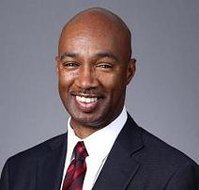
Larry Irving
CEO, Irving Group
Larry Irving, CEO of the Irving Group, a technology consulting firm, produced the first empirical study proving the existence of the “Digital Divide.” This groundbreaking research sparked global interest in digital equity issues and continues to be widely cited today. As assistant secretary of commerce for communications and information and administrator of the National Telecommunications and Information Administration (NTIA) during the Clinton Administration, Irving helped establish some of the earliest and most foundational U.S. domestic and international Internet policies Irving is a graduate of Northwestern University, and serves on the University’s Board of Trustees, and Stanford Law School. He also serves on the Board of Directors of Education Networks of America. In September, 2019, Irving was inducted into the Internet Hall of Fame for his work identifying and advocating solutions to the “Digital Divide.” He is the first African American elected to the Internet Hall of Fame.
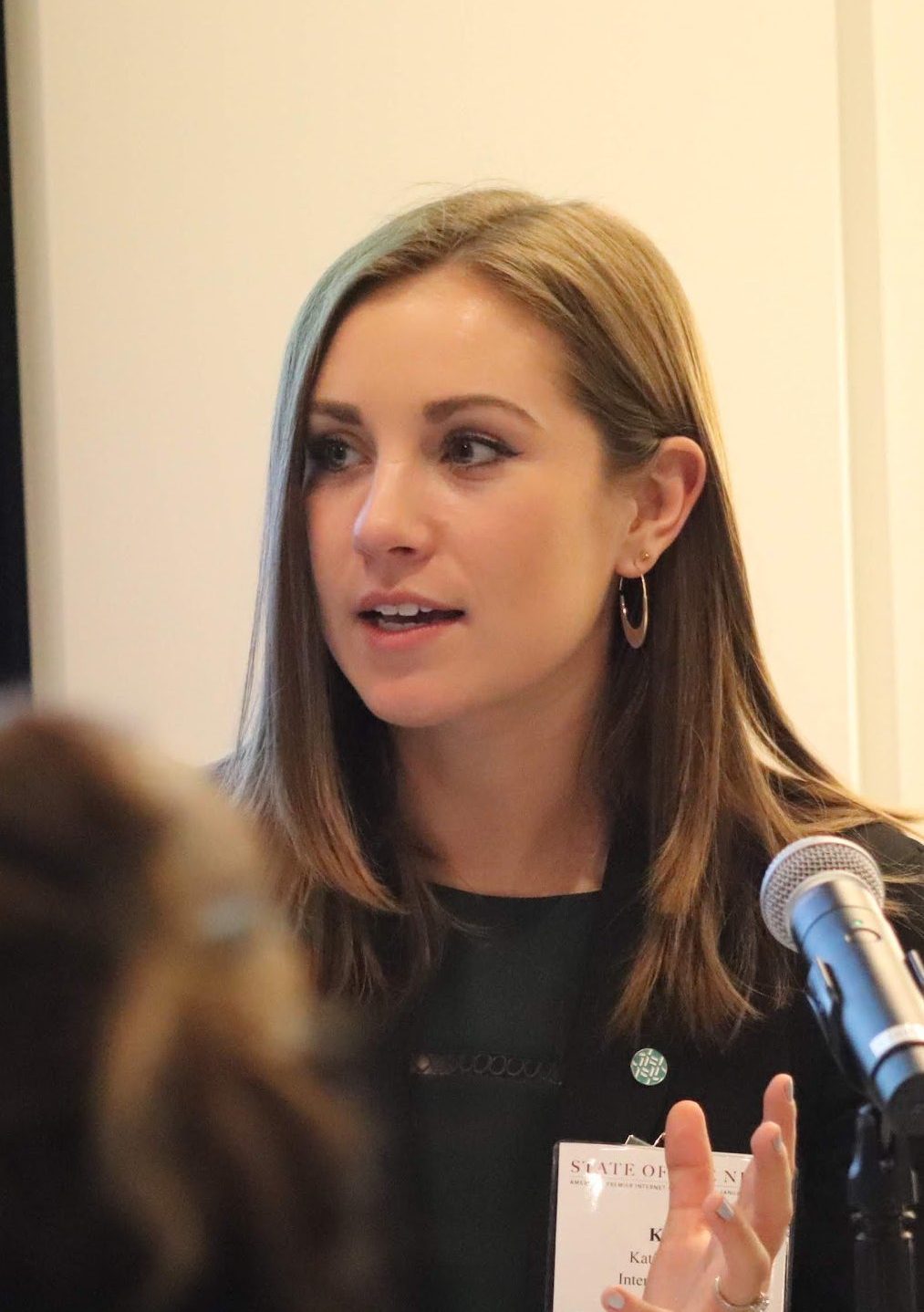
Katie Jordan
Senior Policy Advisor, Internet Society
Katie Jordan is a Senior Policy Advisor at the Internet Society. She joined the organization in March 2018 and currently leads the Internet Way of Networking project globally. Katie also develops and advocates for the organization's public policy positions, including on access and security in the United States and Canada.
Katie received her B.A. from the University of Virginia, where she majored in Foreign Affairs and Media Studies. After graduation, she worked as a Google Public Policy Fellow atNew America's Open Technology Institute and as a Policy and Program Manager at Next Century Cities, where she assisted mayors with local broadband, digital inclusion, and civic tech initiatives. Most recently, she served as the Development Manager at Public Knowledge, where she led development efforts and explored emerging technologies.
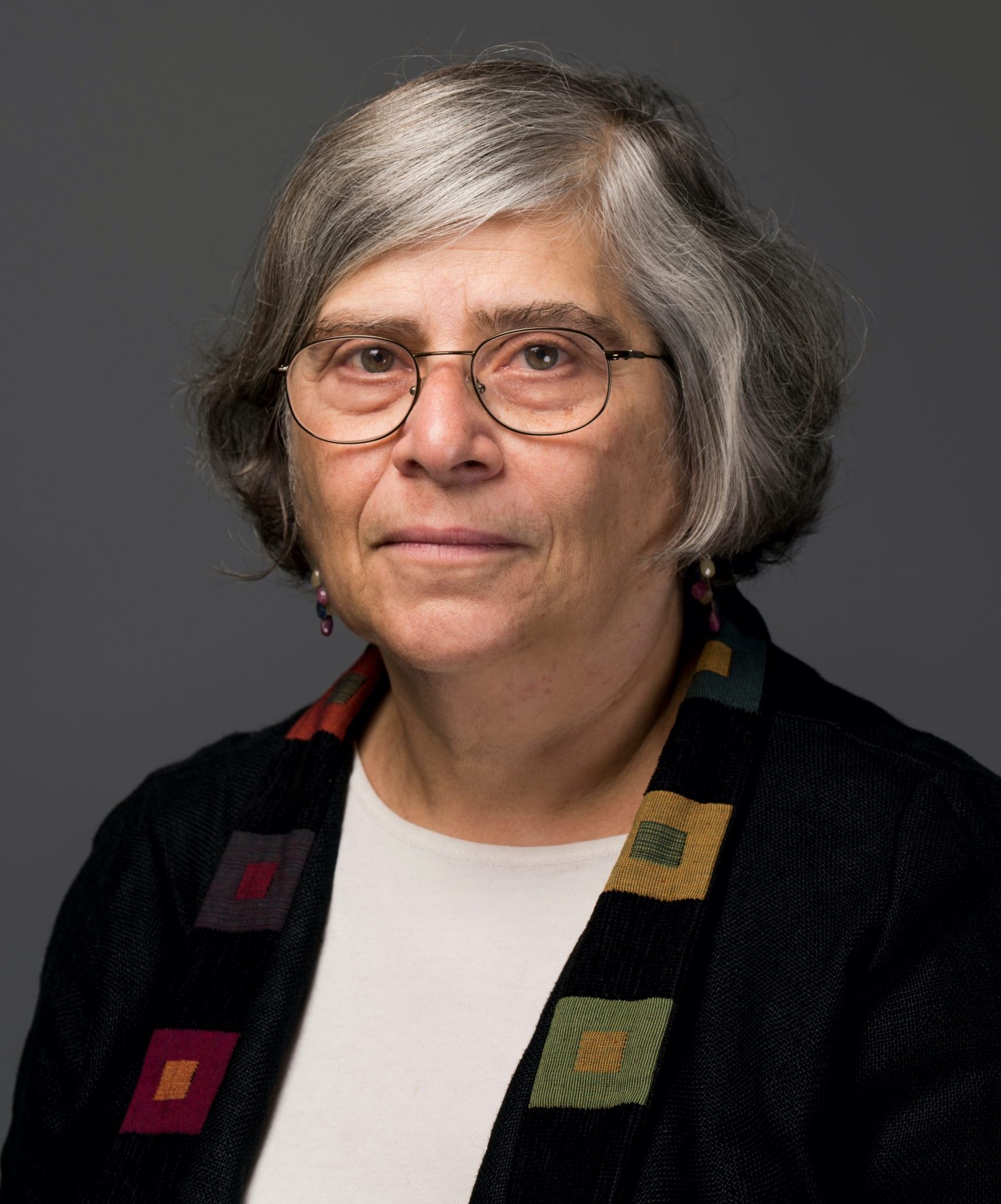
Susan Landau
Bridge Professor in Cyber Security and Policy at the Fletcher School of Law and Diplomacy and the School of Engineering, Department of Computer Science, Tufts University
Susan Landau is Bridge Professor in Cyber Security and Policy at the Fletcher School of Law and Diplomacy and the School of Engineering, Department of Computer Science, Tufts University, and Visiting Professor, Department of Computer Science, University College London. Landau works at the intersection of cybersecurity, national security, law, and policy. She has published three books, the most recent of which, Listening In: Cybersecurity in an Insecure Age, came about because of her Congressional testimony in the Apple/FBI case. Landau has frequently briefed US and European policymakers on encryption, surveillance, and cybersecurity issues. She has been a Senior Staff Privacy Analyst at Google, a Distinguished Engineer at Sun Microsystems, and a faculty member at Worcester Polytechnic Institute, the University of Massachusetts Amherst and Wesleyan University. She is a member of the Cybersecurity Hall of Fame and of the Information System Security Hall of Fame, and is a fellow of the American Association for the Advancement of Science and of the Association for Computing Machinery, as well as having been a Guggenheim and Radcliffe Fellow.
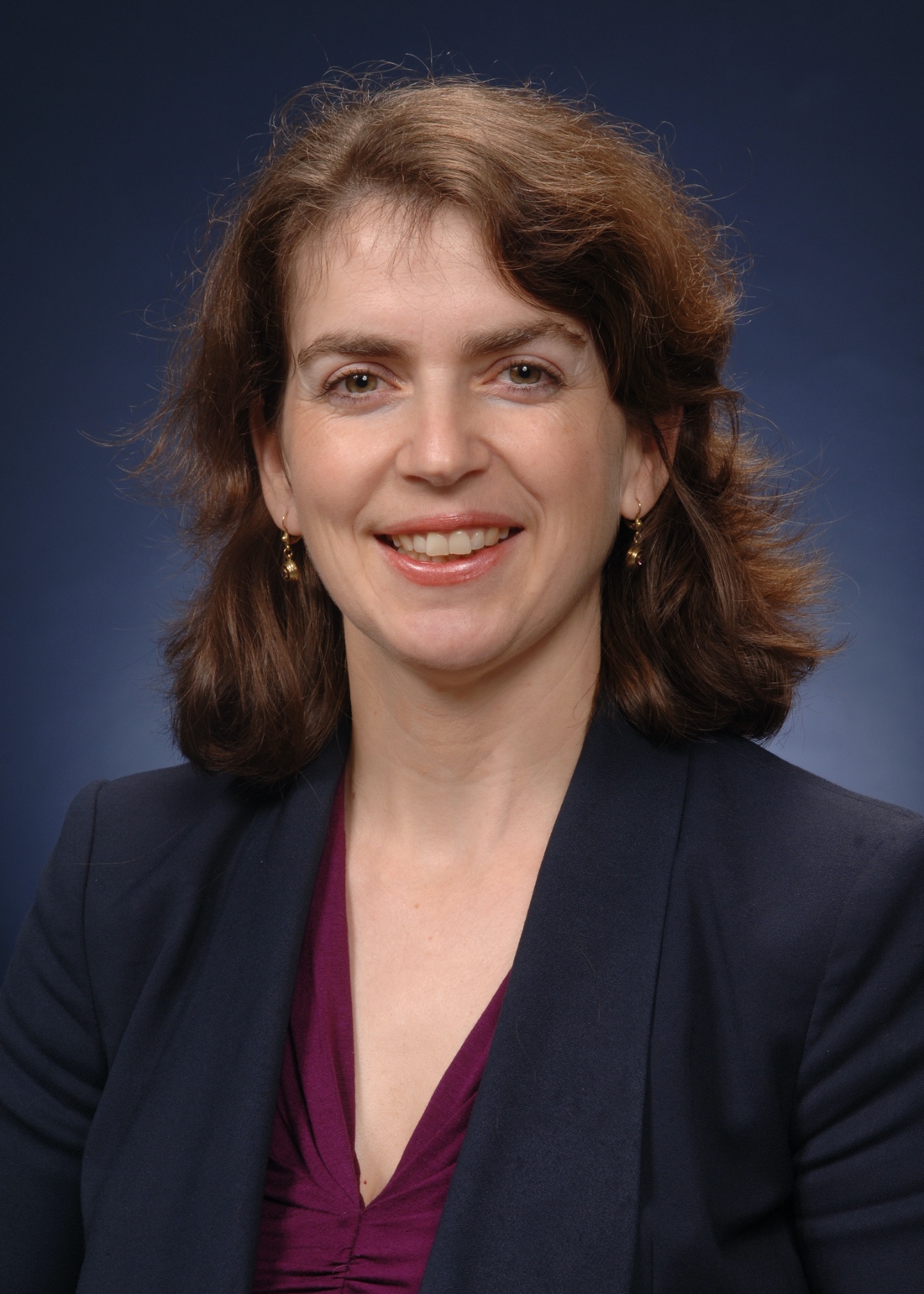
Naomi Lefkovitz
Senior Privacy Policy Advisor in the Information Technology Lab, National Institute of Standards and Technology
Naomi Lefkovitz is the Senior Privacy Policy Advisor in the Information Technology Lab at the National Institute of Standards and Technology, U.S. Department of Commerce. She leads the privacy engineering program, which focuses on developing privacy risk management processes and integrating solutions for protecting individuals’ privacy into information technologies, including digital identity services, IoT, smart cities, big data, mobile, and artificial intelligence. In addition, she leads the NIST Privacy Framework team.
The International Association of Privacy Professionals named Ms. Lefkovitz their 2020 Vanguard Award winner. She also is a 2014, 2018, and 2020 Federal 100 Awards winner. FierceGovernmentIT named her on their 2013 “Fierce15” list of the most forward-thinking people working within government information technology.
Before joining NIST, she was the Director for Privacy and Civil Liberties in the Cybersecurity Directorate of the National Security Council in the Executive Office of the President. Her portfolio included the National Strategy for Trusted Identities in Cyberspace as well as addressing the privacy and civil liberties impact of the Obama Administration’s cybersecurity initiatives and programs.
Prior to her tenure in the Obama Administration, Ms. Lefkovitz was a senior attorney with the Division of Privacy and Identity Protection at the Federal Trade Commission. Her responsibilities focused primarily on policy matters, including legislation, rulemakings, and business and consumer education in the areas of identity theft, data security and privacy.
At the outset of her career, she was Assistant General Counsel at CDnow, Inc., an early online music retailer.
Ms. Lefkovitz holds a B.A. with honors in French Literature from Bryn Mawr College and a J.D. with honors from Temple University School of Law.

Martin Levy
Distinguished Engineer, Cloudflare
Mr. Martin J. Levy holds a Distinguished Engineer position at Cloudflare, a global company based in San Francisco, California. Mr. Levy has been involved in the operational world of TCP/IP for more nearly 40 years and has spent nearly half of that time focused on the well being of Internet backbones, peering and efficient distribution of content.
Mr. Levy worked at the prestigious Bell Telephone Laboratories in the early 80’s with a career revolved around the early days of deploying TCP/IP, DNS and routing protocols on Unix boxes. He has since worked on both early TCP/IP application development along with building global IP networks from the mid 90’s to mid 2000’s. Mr. Levy is mainly known for his dedication and unrelenting pursuit of the deployment of IPv6 within the global Internet. This is well documented online. In March 2014 he joined Cloudflare.
Mr. Levy holds a Bachelor of Science degree in Computing and Cybernetics from the University of Kent, Canterbury (UK 1978). He was born in London, England and has traveled extensively throughout his life. He now resides in California and has done so for well over half his life. He’s a UK/US dual citizen.
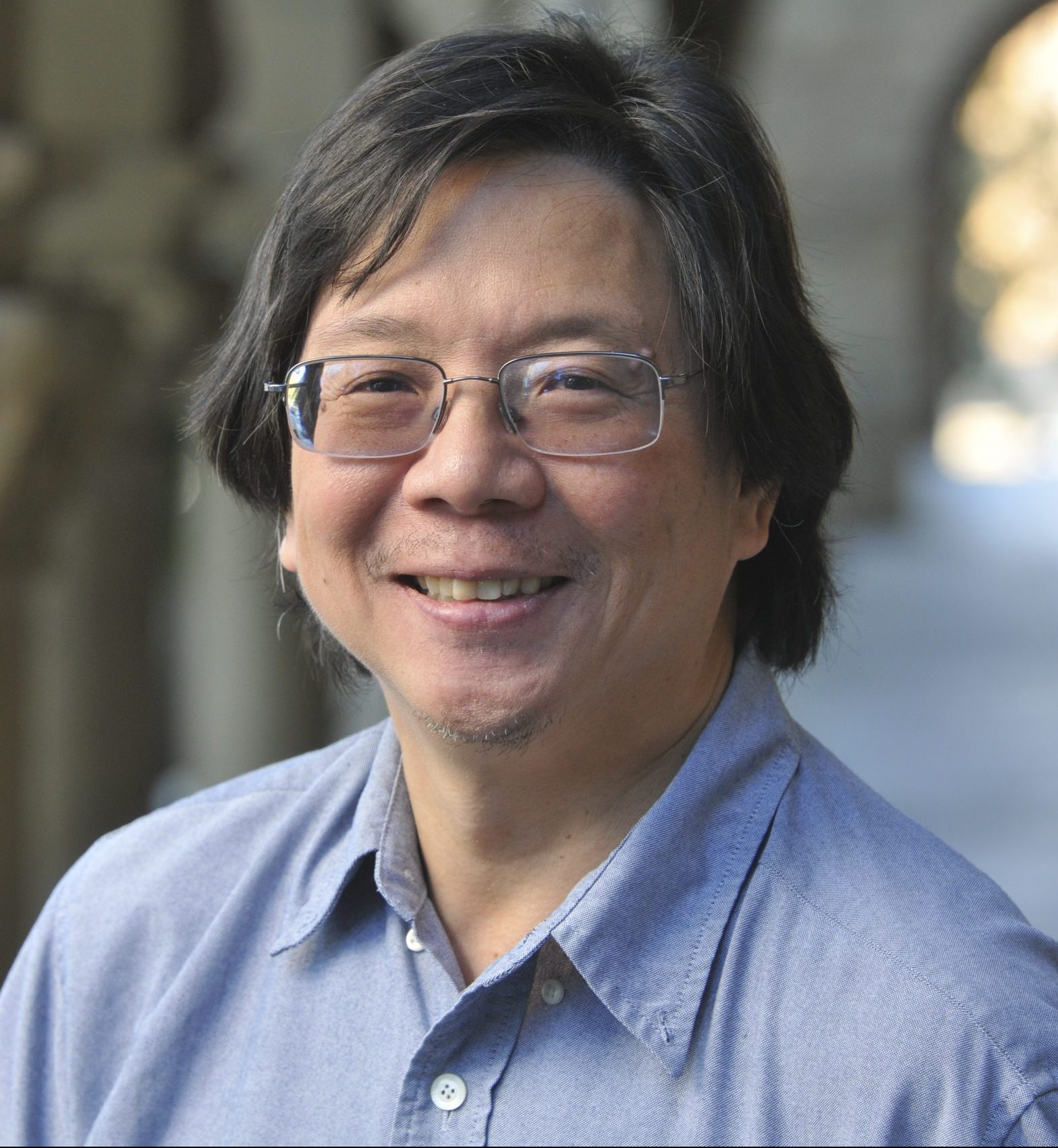
Herb Lin
Senior Research Scholar, CISAC and Research Fellow, Hoover Institution at Stanford University
Dr. Herb Lin is senior research scholar for cyber policy and security at the Center for International Security and Cooperation and Hank J. Holland Fellow in Cyber Policy and Security at the Hoover Institution, both at Stanford University. His research interests relate broadly to policy-related dimensions of cybersecurity and cyberspace, and he is particularly interested in the use of offensive operations in cyberspace as instruments of national policy and in the security dimensions of information warfare and influence operations on national security. In addition to his positions at Stanford University, he is Chief Scientist, Emeritus for the Computer Science and Telecommunications Board, National Research Council (NRC) of the National Academies, where he served from 1990 through 2014 as study director of major projects on public policy and information technology, and Adjunct Senior Research Scholar and Senior Fellow in Cybersecurity (not in residence) at the Saltzman Institute for War and Peace Studies in the School for International and Public Affairs at Columbia University; and a member of the Science and Security Board of the Bulletin of Atomic Scientists. In 2016, he served on President Obama’s Commission on Enhancing National Cybersecurity. Prior to his NRC service, he was a professional staff member and staff scientist for the House Armed Services Committee (1986-1990), where his portfolio included defense policy and arms control issues. He received his doctorate in physics from MIT.
Avocationally, he is a longtime folk and swing dancer and a lousy magician. Apart from his work on cyberspace and cybersecurity, he is published in cognitive science, science education, biophysics, and arms control and defense policy. He also consults on K-12 math and science education.
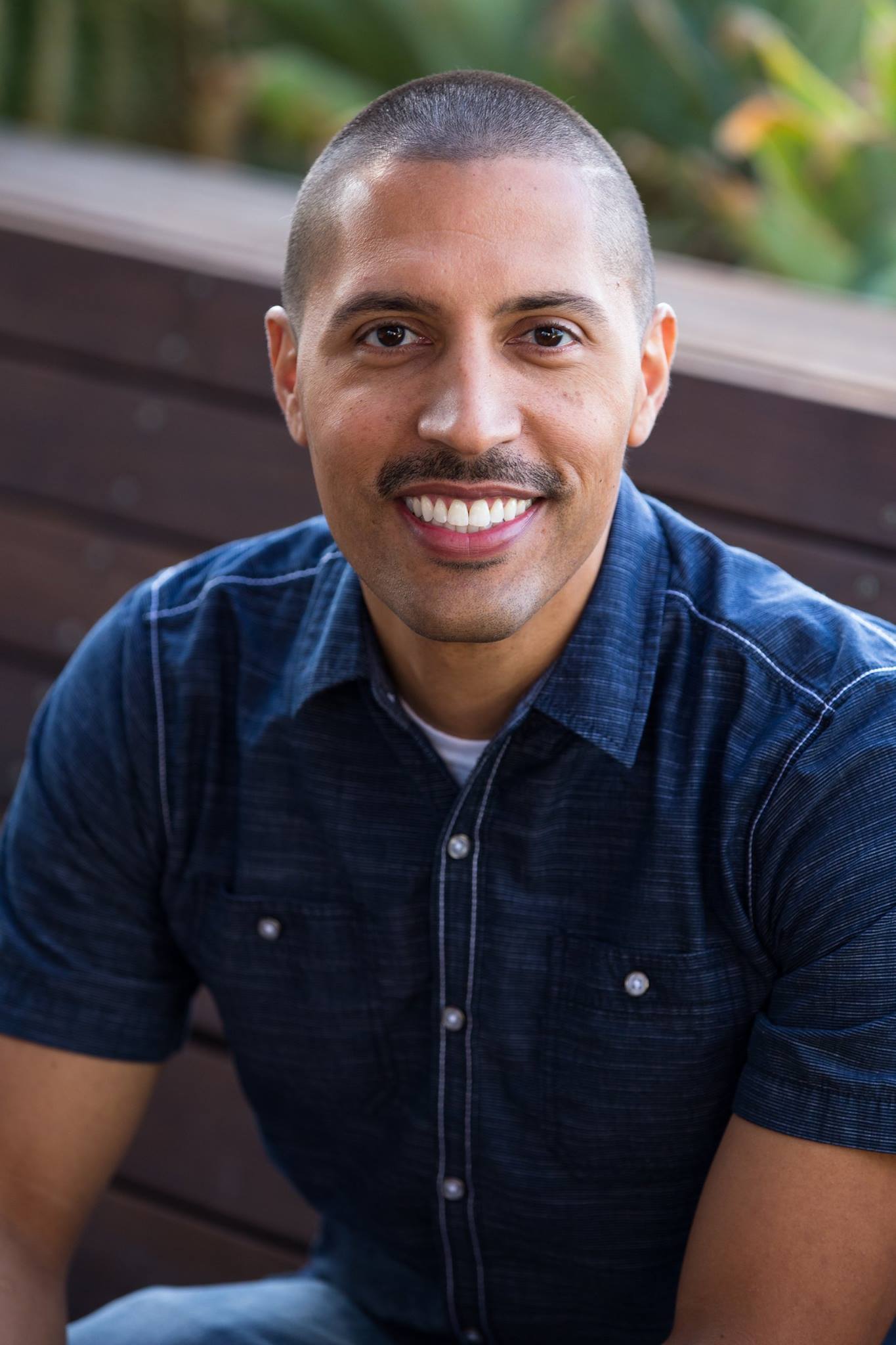
George Montañez
Assistant Professor of Computer Science, Harvey Mudd College
After earning his PhD in machine learning from Carnegie Mellon University, George Montañez became a data scientist with Microsoft (AI+R), and is currently the Iris and Howard Critchell Assistant Professor of Computer Science at Harvey Mudd College in Claremont, CA. He holds an M.S. in computer science from Baylor University and a B.S. in computer science from the University of California Riverside. He was an NSF Graduate Research Fellow and a Ford Foundation Predoctoral Fellow. He previously served as an intern at Microsoft Research and Yahoo! Labs. He has worked as a software engineer and full-stack developer. His research lies at the intersection of machine learning, algorithmic search and information theory. At the 2017 International Joint Conference on Neural Networks, Montañez won the Best Poster award and the INNS/Intel Best Student Paper award for “The LICORS Cabinet: Nonparametric Light Cone Methods for Spatio-Temporal Modeling,” coauthored with Cosma Rohilla Shalizi, and a Best Student Paper award at the 2017 IEEE International Conference on Systems, Man, and Cybernetics. He previously won the Best Paper award at CIKM 2014, with coauthors Ryen White and Xiao Huang for their paper on cross-device search. Most recently, he and his student collaborators received the Best Paper award at the 12th International Conference on Agents and Artificial Intelligence (ICAART 2020) for their paper “The Bias-Expressivity Trade-off.” He is passionate about mentoring, and has worked with over 40 undergraduate student researchers, being awarded a Diversity Mentoring Award by the Claremont Colleges Consortium in recognition of his mentoring efforts inside and outside the classroom.

Francella Ochillo
Executive Director, Next Century Cities
Francella is an attorney and digital rights advocate who has worked on a variety of technology and telecommunications issues. Her work often examines how public policy impacts disenfranchised populations. As Executive Director of Next Century Cities, Francella leads efforts to help policymakers and lawmakers at every level of government recognize the importance of ubiquitous broadband and community-based partnerships. Her organization's work focuses on supporting local officials who are connecting their residents to digital opportunities. A member of the District of Columbia Bar and Federal Communications Bar Association, Francella also represents Next Century Cities on the FCC’s Broadband Deployment Advisory Committee’s Disaster Response & Recovery Working Group.

Katie Oyama
Global Director, Business Public Policy, YouTube
Katie Oyama is the Global Director for YouTube Business Public Policy and Google's former Global Head of IP Policy. From 2009 to 2011, she worked at the White House as Associate Counsel and Deputy Counsel to Vice President Joseph R. Biden. Prior to her government service, Katie was an IP litigator at Wilmer Cutler Pickering Hale & Dorr’s Washington office. She previously worked for a New York based strategy consulting firm and Marc Andreessen's Silicon Valley-based startup, LoudCloud.
Katie is a graduate of Smith College, where she graduated with High Honors in Government, and the University of California, Berkeley School of Law (Boalt Hall), where she served as senior articles editor of the Berkeley Technology Law Journal (BTLJ). She has testified before Congress on issues relating to copyright, trademark, CDA 230, and the creative economy multiple times. In addition to her work in the U.S., Katie has represented Google on global trade and digital economy issues at the United Nations (UN), Internet Governance Forum (IGF), World Intellectual Property Organization (WIPO), World Trade Organization (WTO), European Union (EU), World Economic Forum (WEF) and met with policymakers on 6 continents. She is currently a Policy Fellow at the University of Cambridge (UK) focused on copyright and machine learning.
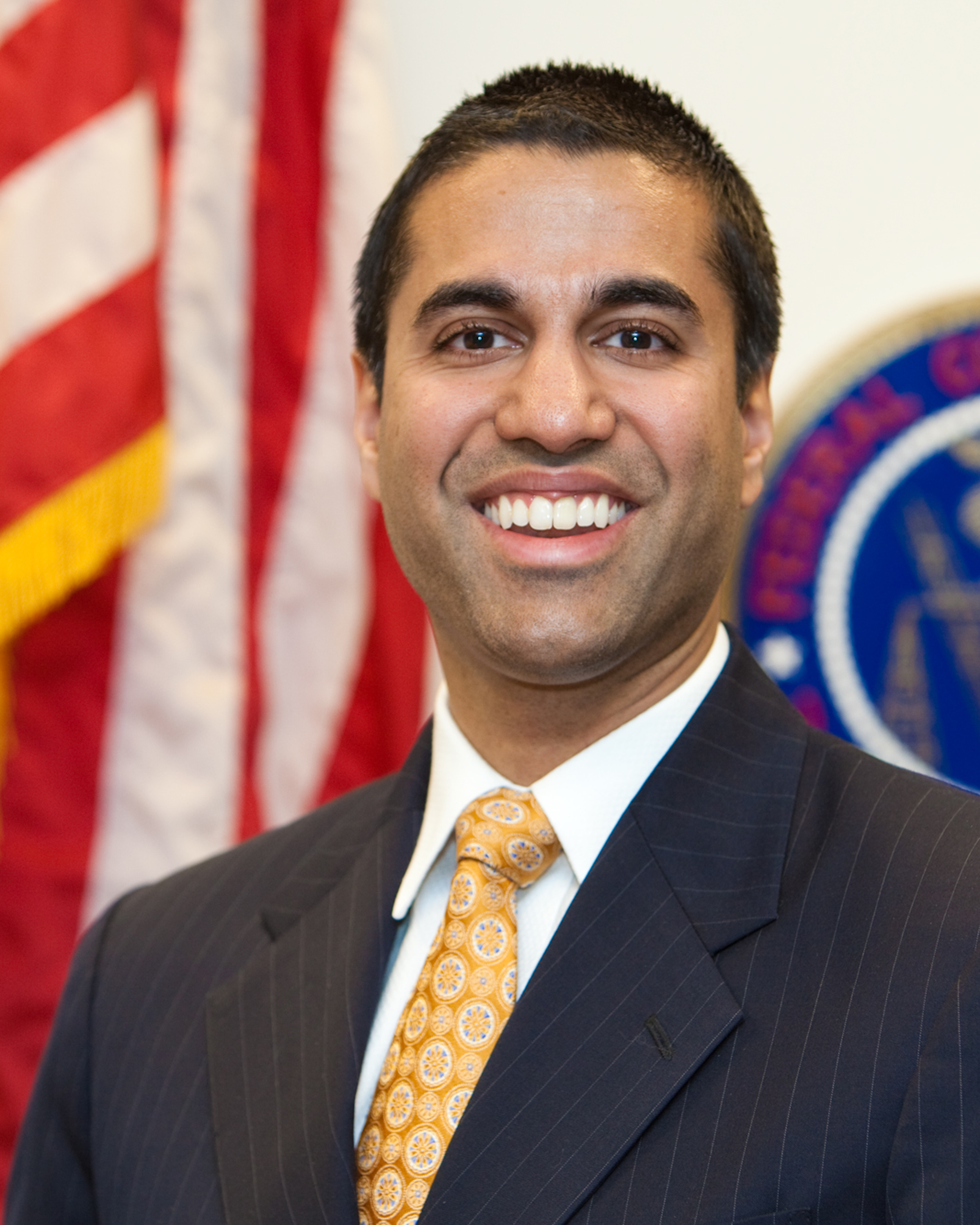
Ajit Pai
Chairman, FCC
Ajit Pai is the Chairman of the Federal Communications Commission. He was designated Chairman by President Donald J. Trump in January 2017. He had previously served as Commissioner at the FCC, appointed by then-President Barack Obama and confirmed unanimously by the United States Senate in May 2012.

J.R. Rao
IBM Fellow and CTO, Security Research at IBM Thomas J. Watson Research Center
J.R. Rao is an IBM Fellow and CTO for the Security Research team at IBM. Based at the IBM T. J. Watson Research Center, the global team comprises more than 200 researchers who work in the areas of AI Security, Cybersecurity, Cloud and Systems Security, Information Security and Cryptography. The goal of Dr. Rao's research is to signi ficantly improve the quality of security while easing the overhead of developing and deploying secure solutions. He has published widely in premier security conferences and workshops and holds numerous US and European patents. He is a member of the IBM Academy of Technology, has served on the Industry Advisory Board of the Georgia Tech Information Security Center, and is an emeritus member of the International Federation of Information Processing Working Group 2.3 (Programming Methodology). Dr. Rao obtained his doctorate degree from the University of Texas at Austin, a Masters degree in computer science from the State University of New York at Stony Brook, and a B. Tech degree in electrical engineering from the Indian Institute of Technology, Kanpur.
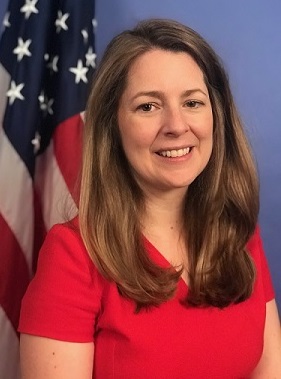
Diane Rinaldo
Acting Assistant Secretary, National Telecommunications and Information Administration, Department of Commerce
Diane Rinaldo was sworn in as Deputy Assistant Secretary for Communications and Information at the Department of Commerce on April 20, 2018. On May 9, 2019, she became Acting Assistant Secretary for Communications and Information for the Department, and Administrator of the National Telecommunications and Information Administration, the Executive Branch agency principally responsible for advising the President on telecommunications and information policy.
Focusing on cybersecurity and technology policy, Diane has extensive experience in government and the private sector throughout her career. She staffed the House Permanent Select Committee on Intelligence, where she was the lead committee staffer on Congress’ landmark cybersecurity legislation, the Cybersecurity Act of 2015. She also served as the oversight and budget monitor for the National Security Agency and the defense network systems, and served as Deputy Chief of Staff to Congressman Mike Rogers as his top technology policy staffer.
Recognized for her work on cybersecurity, Rinaldo was awarded the Executive Women’s Forum’s 2016 Influencer of the Year award. She earned a bachelor’s degree in Political Science from the University of Maine and an Executive Certificate from the Kennedy School of Government at Harvard University for cyber studies.
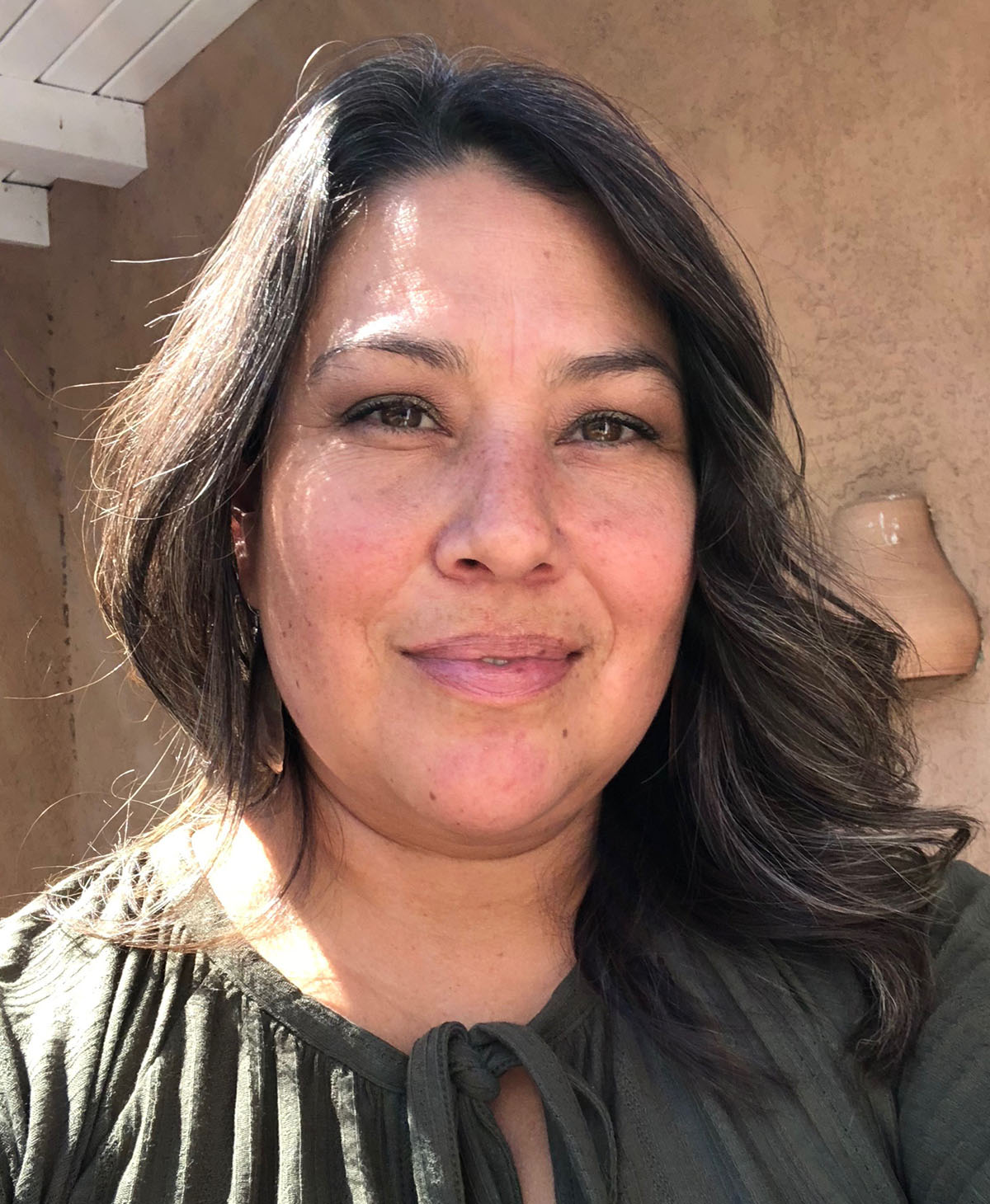
Kimball Sekaquaptewa
Chief Technology Director, Santa Fe Indian School
Kimball Sekaquaptewa is the Chief Technology Director at the Santa Fe Indian School. Since 2009, Mrs. Sekaquaptewa has addressed regional broadband connectivity issues through the construction of middle mile networks by working with tribes to aggregate demand and harness local expertise to build tribally-owned networks. Her work with six tribes in New Mexico resulted the construction of two 60-mile fiber optic networks bringing high speed Internet rural underserved Pueblos. In 2006, her early work to build tribal capacity and the next generation of native IT professionals included a $1.2 million NSF IT Experiences for Students and Teachers award that provided STEM opportunities for native youth. In 2016, she helped with a USDA RUS Distance Learning and Telemedicine Grant that will connect twelve Tribal libraries to the SFIS distance learning center, expanding native language classes and promoting language revitalization.
Mrs. Sekaquaptewa is from the Hopi Tribe of Arizona. She currently resides in Cochiti Pueblo where she is the mother of three children. She holds an undergraduate degree from Stanford University and is a Woodrow Wilson fellow with a MBA from the University of New Mexico.

Syd Terry
Legislative Director, Office of Congresswoman Jan Schakowsky
Mr. Syd Terry joined the Office of Congresswoman Jan Schakowsky in June of 2018 as Legislative Director. Ms. Schakowsky is a senior Member of the House Energy and Commerce Committee, where she serves as Chair of the Consumer Protection and Commerce Subcommittee. The subcommittee has oversight of consumer product safety, auto safety, as well as the Federal Trade Commission. Syd advises the Chairwoman on all matters before the subcommittee, as well as on tax, trade, labor and other economic issues. in addition to staffing her in her capacity as a Senior Chief Deputy Whip and managing the rest of the legislative staff.
Previously, he served as a Senior Legislative Assistant for Congressman Mark Pocan, co-chair of the Progressive Caucus, when it first opened in January of 2013. In this capacity, he served as the primary labor and environmental policy staffer for a member of the House Appropriations Committee.
Originally from Denver, Colorado, Syd graduated from University of Wisconsin - Madison in May 2007 with a Bachelor of Arts degree in Political Science. In the past ten years, he has been active in Democratic politics. He was a co-founder of the University of Wisconsin chapter of the Roosevelt Institute-Campus Network, which is part of a national non-profit network of progressive student think tanks aimed at connecting students’ ideas to the policy-making process.
In 2012, Syd served as Field Director on Congressman Pocan’s primary election campaign, after which he served as Regional Field Director for Senator Tammy Baldwin’s successful campaign in the general election the fall of the same year.
In the Fall of 2010, Syd worked on Senator Michael Bennet’s successful campaign in his home state of Colorado. He worked on the policy and research team and later on voter protection during the run-up to the election. Prior to that, he worked at the Washington Campus, an association of business schools that trains future business leaders as well as faculty and staff at member schools on how to effectively engage the Federal Government. Additionally, he served as an intern in the offices of former Senators Carl Levin (D-MI) and Ken Salazar (D-CO) in 2005.
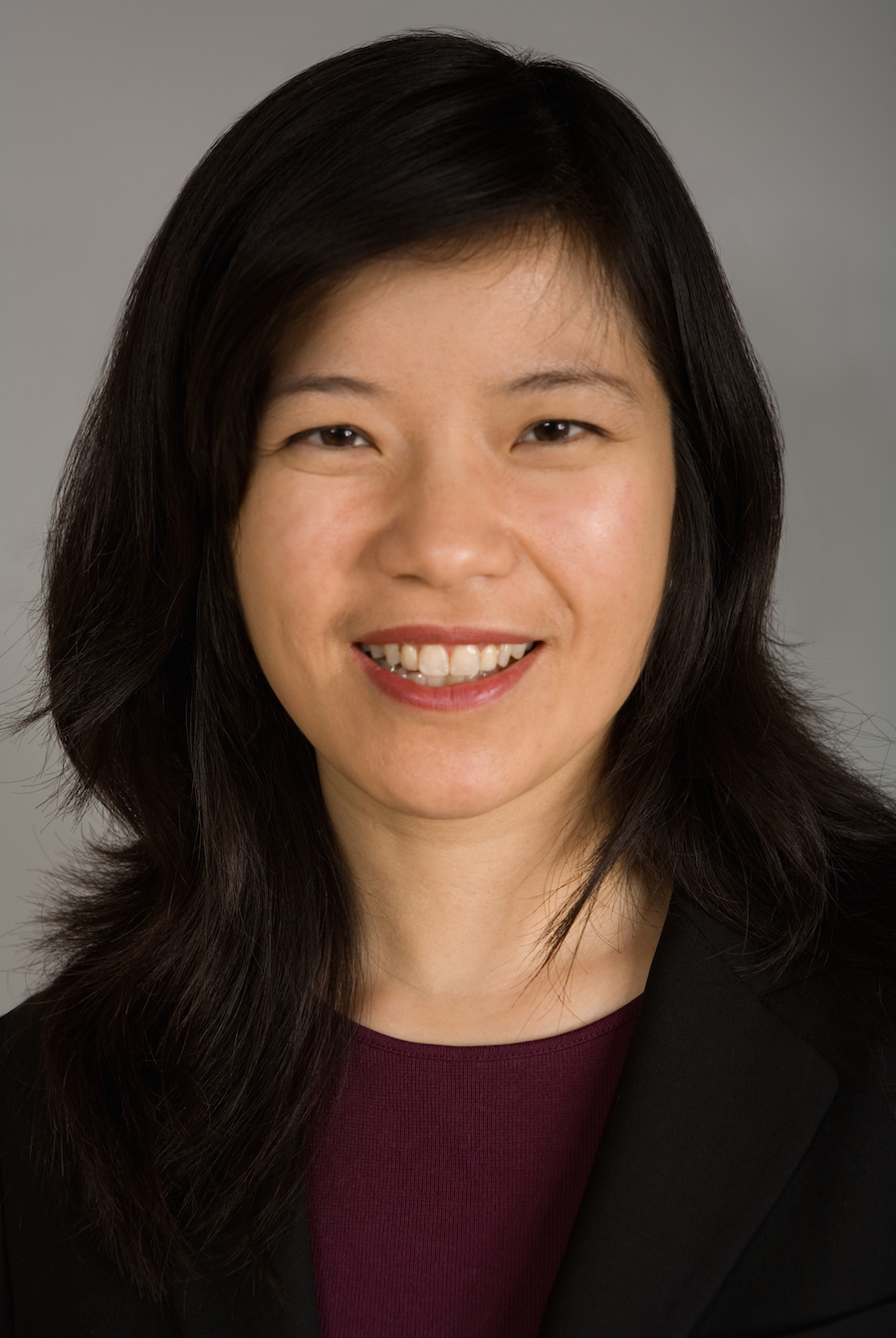
Emy Tseng
Senior Program Specialist, NTIA, U.S. Department of Commerce
Emy Tseng is a Senior Program Specialist with NTIA’s BroadbandUSA program. She provides technical assistance to local and state governments on their digital inclusion strategies and initiatives. Her work focuses on expanding broadband access, adoption and digital skills in underserved and vulnerable communities across the country. Prior to NTIA, Ms. Tseng developed one of the nation’s first city-led digital inclusion initiatives for the City and County of San Francisco. She also previously worked at the Community Technology Foundation of California and Ford Foundation on communications policy. Ms. Tseng holds a Master of Science degree from the Technology and Policy Program at the Massachusetts Institute of Technology (MIT), and a Bachelor of Science degree in Math/Physics from Brown University. From 2014-2016, she was a fellow and affiliate of the Berkman Klein Center for Internet and Society at Harvard University. In 2017, Ms. Tseng was awarded the Charles Benton Digital Equity Champion Award for her longstanding work on digital inclusion.

Chris Wilson
Senior Manager, Public Policy, Amazon
Chris possesses over 20 years of public policy experience covering a wide-range of subject matters, including the last seven years focusing on Internet governance policy.
Chris currently serves as Senior Manager, Public Policy, for Amazon where he coordinates the company’s policy engagement at the Internet Corporation for Assigned Names and Numbers (ICANN), the United Nations, and the Organization for Economic Cooperation and Development (OECD).
Prior to joining Amazon, Chris represented the interests of the media company 21st Century Fox before various Internet governance bodies, including ICANN. While at 21st Century Fox, Chris served as Chair of ICANN’s Business Constituency.
Additionally, Chris worked for Time Warner Inc. where he advocated for the company before Capitol Hill on general telecommunications and media policy matters.
Chris’s early career began on Capitol Hill in the office of the late U.S. Senator Arlen Specter and subsequently at two law firms, Drinker Biddle & Reath LLP and Wiley Rein LLP, where he worked on a variety of telecommunications legal matters, and the Technology Association of America (TechAmerica).
Chris earned his Bachelor’s degree in Public Policy Studies from Vanderbilt University and his J.D., cum laude, from American University’s Washington College of Law. Chris resides in Arlington, VA with his wife (Carla), daughter (Cecelia), and son (Charles).



